14700K vs 13900K: can Intel's new midrange chip dethrone last generation's best?
Which Intel chip should you buy, the 14700K or 13900K?
Sign up for breaking news, reviews, opinion, top tech deals, and more.
You are now subscribed
Your newsletter sign-up was successful
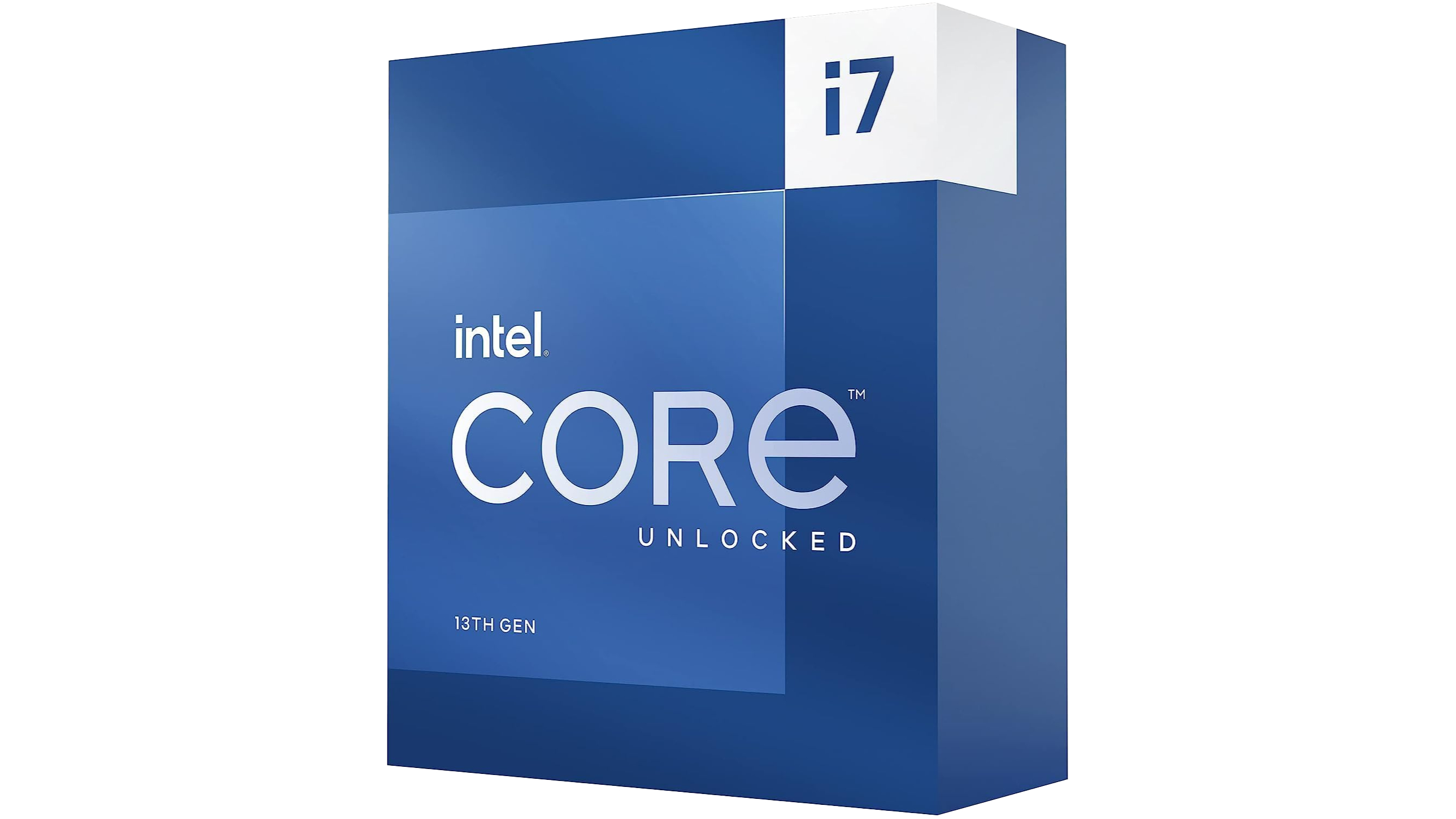
Efficiency Cores: 12
Performance Cores: 8
Threads: 28
Base Clock (E-Cores): 2.5 GHz
Base Clock (P-Cores): 3.4 GHz
Boost Clock (E-Cores): 4.3 GHz
Boost Clock (P-Cores): 5.5 GHz
Total Cache: 61MB
TDP: 125W
The Intel Core i7-14700K is a seriously impressive chip delivering Core i9-13900K levels of performance, including the best gaming performance of any Intel chip, at an i7 price point—and a lower one than its predecessor to boot.
Pros
- Core i9-13900K performance
- Outstanding gaming processor
- Slight price cut from previous gen
Cons
- Only a small gen-on-gen improvement
- Runs very hot
- Higher power usage
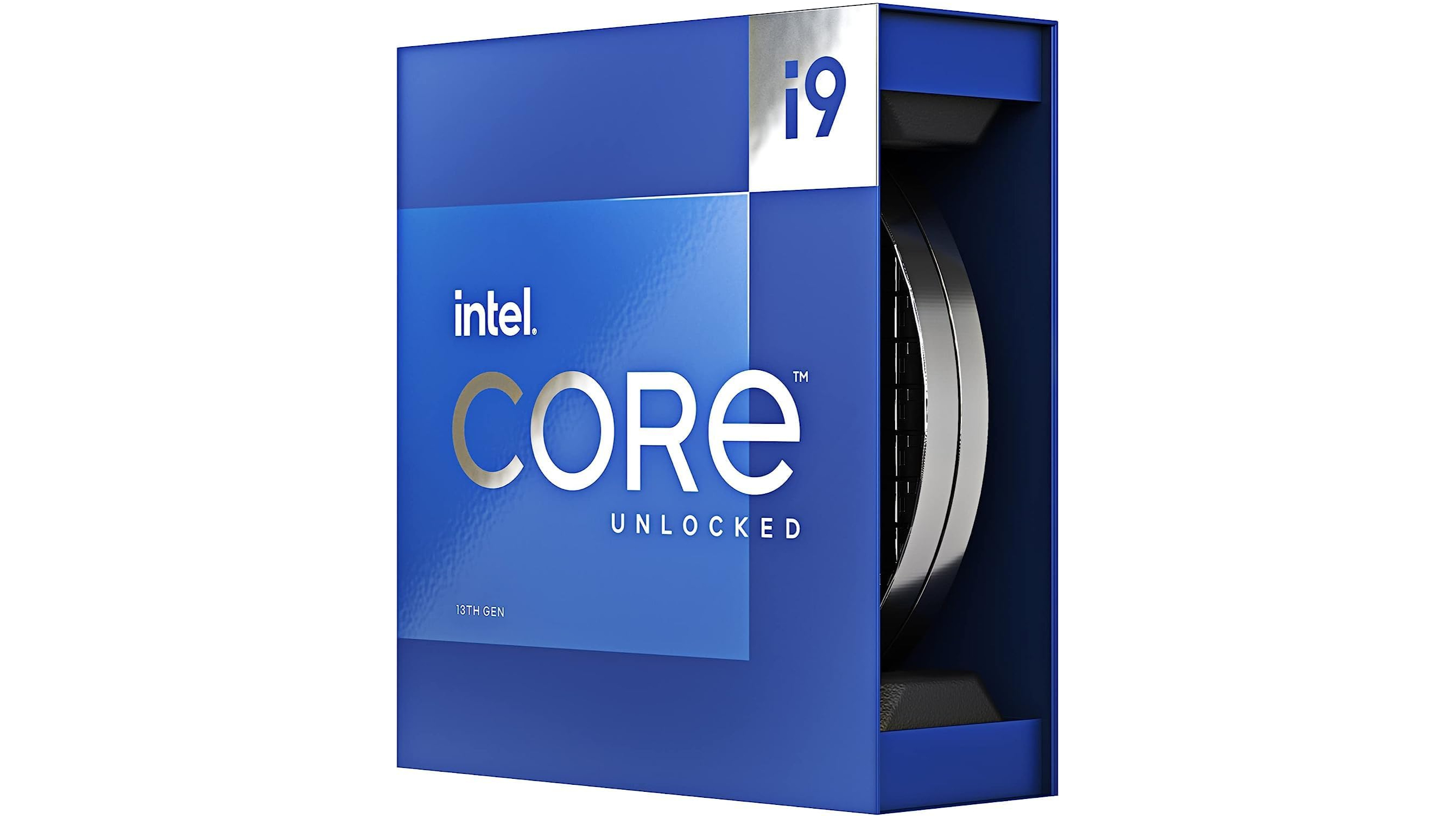
Efficiency Cores: 16
Performance Cores: 8
Threads: 32
Base Clock (E-Cores): 2.2 GHz
Base Clock (P-Cores): 3.0 GHz
Boost Clock (E-Cores): 4.3 GHz
Boost Clock (P-Cores): 5.8 GHz
L3 Cache: 36MB
TDP: 125W
Intel’s last-gen flagship Core i9-13900K is a beast in just about every area, holding its own against its successor admirably, but is it enough to hold onto the best processor crown now that the 14th-gen chips have hit the market?
Pros
- Dominates single-core and multi-core workloads
- Same pricing as 12900K
- Outstanding creative performance
Cons
- Obscene power draw
- Runs extremely hot
- Lacks AMD’s 3D V-cache for gaming
Building a new PC can be a difficult process without the right CPU for the job and that’s why you need to weigh up the 14700K vs 13900K. It’s the tried-and-true tale of the brand-new mid-range model taking on the previous generation flagship, because, theoretically, performance always increases with each generation, while prices stay iterative.
The recently released Intel Core i7-14700K is an excellent chipset and we consider it to be the strongest in terms of value for money when compared to the rest of the refresh. In our 4-star review, we said that: “The Intel Core i7-14700K is possibly the only great processor from the Raptor Lake Refresh launch lineup, thanks to a few upgrades that lift it up to i9-13900K levels of performance”. It also happens to be competitive against the best processors made by AMD as well, so there’s certainly a lot of potential here.
In contrast, the Intel Core i9-13900K is a behemoth of a processor even into its second year of market availability. In our perfect 5-star review we said that it’s “a beast in just about every area” holding its own against CPUs from AMD and from within Intel’s previous lineups. It’s tough competition for sure, and that’s why we’re comparing 14700K vs 13900K to see whether you’re better off going for a tried-and-tested i9 or giving the next generation of i7 a go in your rig instead.
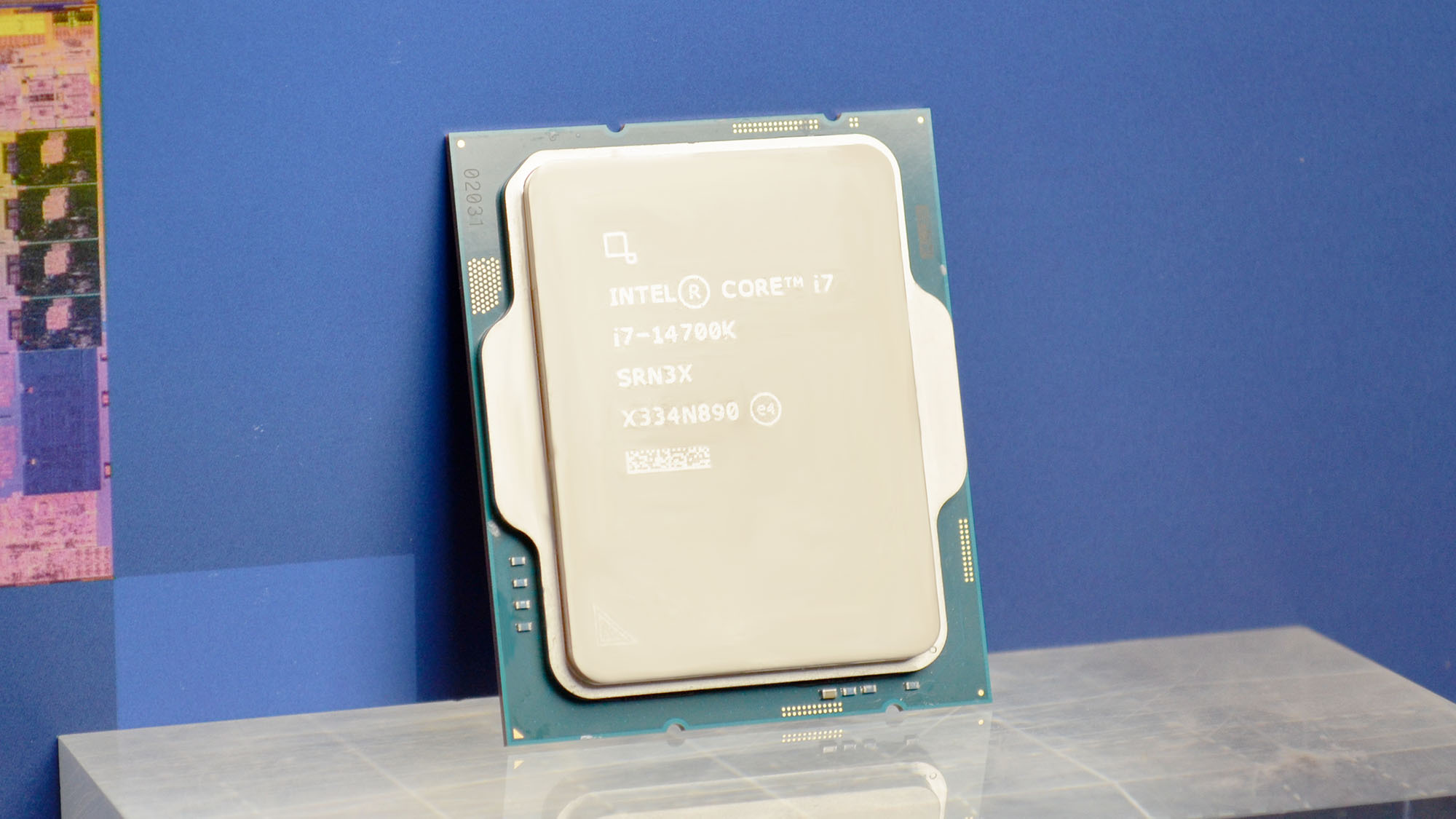
14700K vs 13900K: Price
The 14700K is the cheaper of the two Intel processors as it retails for $409 / £311 / AU$593 which is slightly cheaper than its predecessor, the 13700K by about 2% if that. In contrast, the previous leading i9 CPU sells for $589 / £448 / AU$854 which is a price that remains unchanged from the 13900K which it recently replaced.
That’s a total price difference of $180 / £130 / AU$261 (or around 44% depending on the region). That’s quite the jump in price between i7 and i9, and that’s historically how it’s been for the last few generations. Regardless of whether you’re aiming for a mid-range or a leading processor, both chipsets use the LGA 1700 socket, which has been around since 2021 meaning some of the best motherboards could be around discounted, as long as you can flash them with a bios update.
While both chipsets can use older DDR4 memory, for the best performance you are better off sticking with some of the best DDR5 RAM, some of the best RAM you can buy really, for optimum performance. However, unlike with some of the best AMD processors, you aren’t bound to the latest memory, so you could save a couple extra bucks on the hardware here in your build.
- Winner: Intel Core i7-14700K
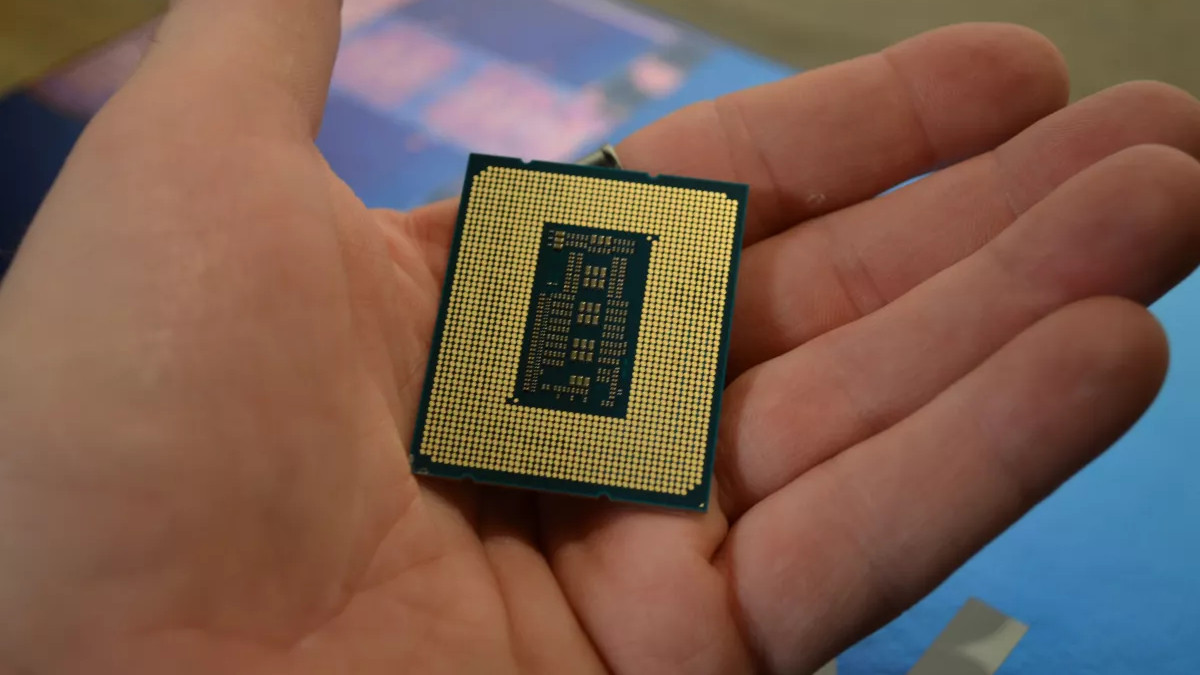
14700K vs 13900K: Specs & features
Both the 14700K and the 13900K utilize Intel’s hybrid architecture which has been the core of the last three processor generations. Given the Intel Core i7-14700K’s cheaper sticker price, it should come as no surprise that this model is less impressive on the technical front with fewer efficiency cores to play with than the previous-generation i9. Both chips have the same eight performance cores to put to use, but take different approaches. Here’s both models directly compared.
Sign up for breaking news, reviews, opinion, top tech deals, and more.
| Header Cell - Column 0 | Intel Core i7-14700K | Intel Core i9-13900K |
|---|---|---|
| Performance Cores | 8 | 8 |
| Efficiency Cores | 12 | 16 |
| Threads | 28 | 32 |
| P-Core Base Clock | 3.40GHz | 3.0GHz |
| P-Core Boost Clock | 5.60GHz | 5.80GHz |
| E-Core Base Clock | 2.50GHz | 2.20GHz |
| E-Core Boost Clock | 4.30GHz | 4.30GHz |
| L3 Cache | 33MB | 36MB |
| TDP | 125W | 125W |
| Motherboard Socket | LGA 1700 | LGA 1700 |
While the Intel Core i7-14700K boasts a slightly higher base clock speed for its P-cores and E-cores, the Intel Core i9-13900K features four more efficiency cores overall with a higher total boost clock speed of up to 5.8 GHz. Combine this with slightly more L3 Cache and a higher thread count and the 13900K takes the win in this respect, at least on paper.
- Winner: Intel Core i9-13900K
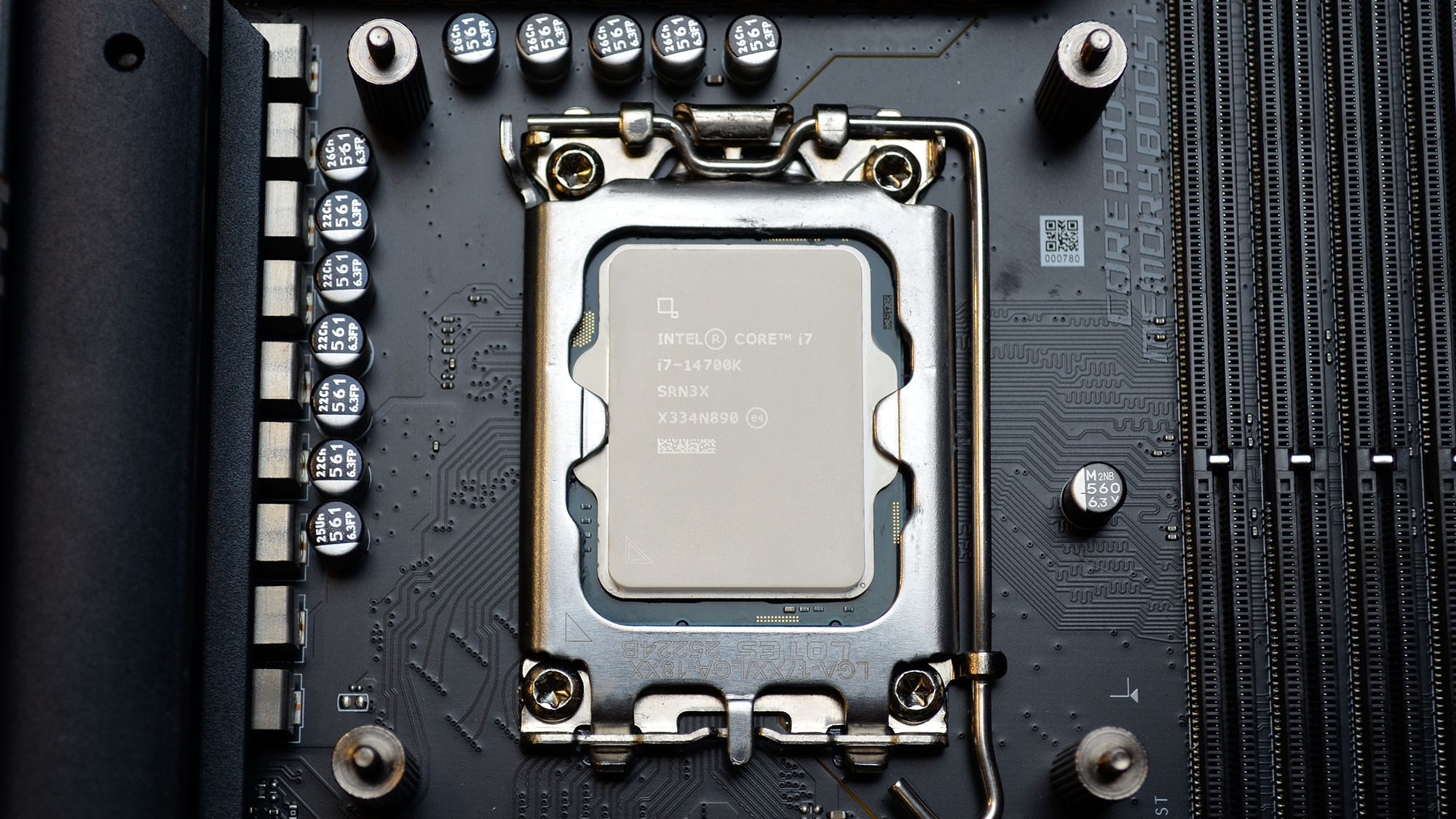
14700K vs 13900K: Performance
While the Intel Core i9-13900K had more under the hood theoretically to absolutely trounce the 14700K, the truth is far more nuanced, and the 14700K even scored a little higher than the previous leading chipset in some respects. Truth be told, it’s a close race, but the extra grunt of the 13th Gen i9 gives it the slight edge in our testing.
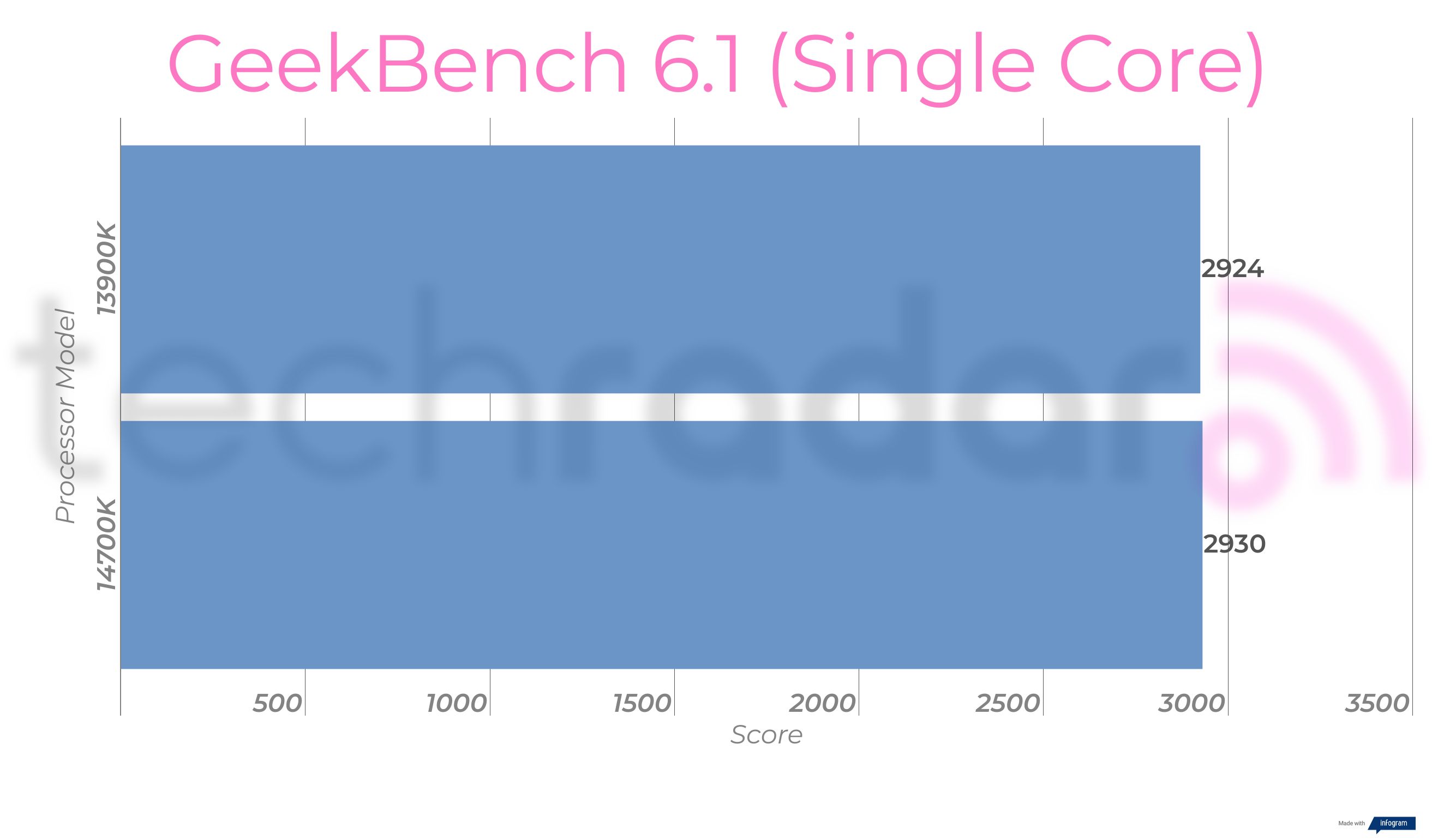
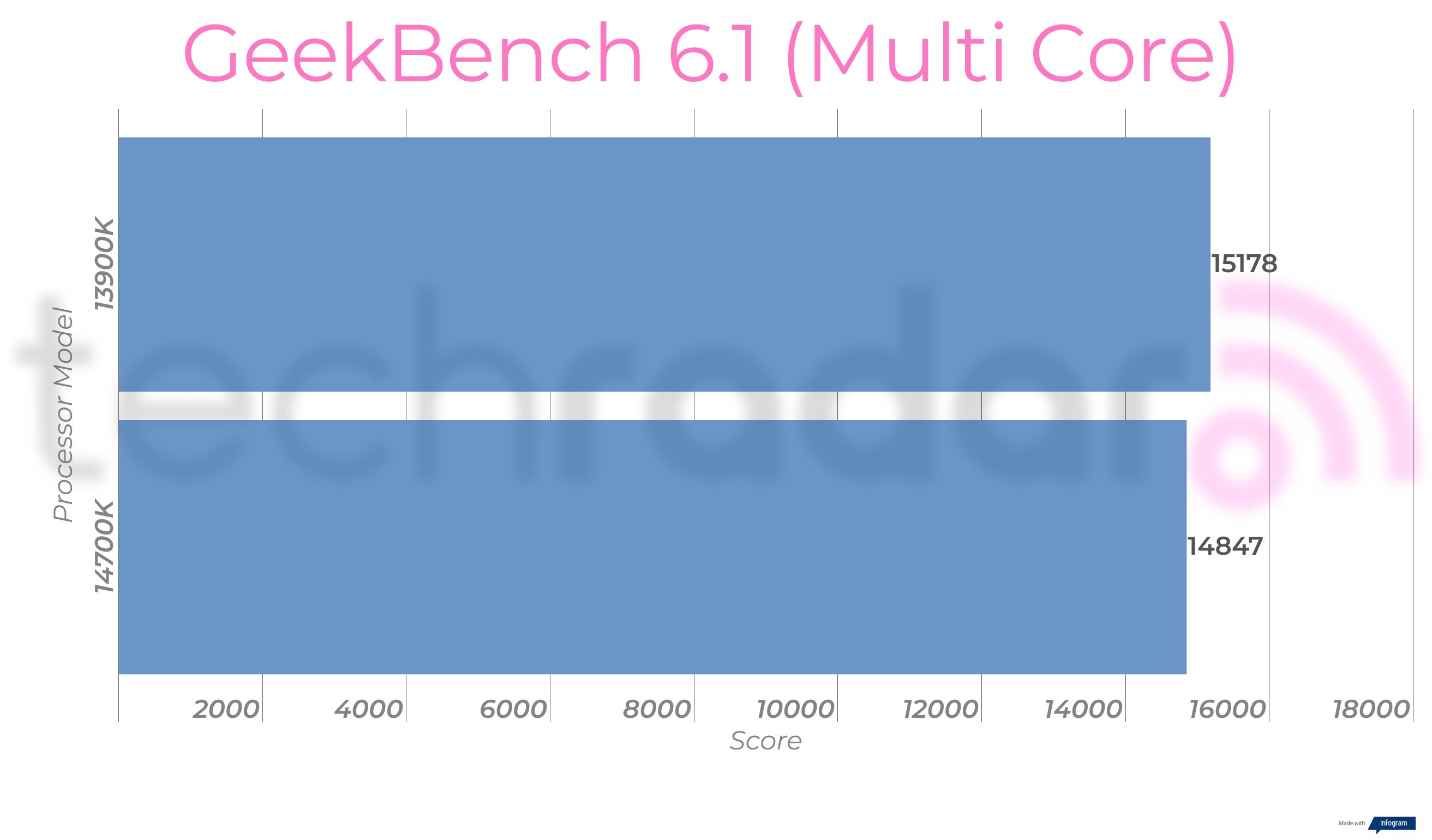
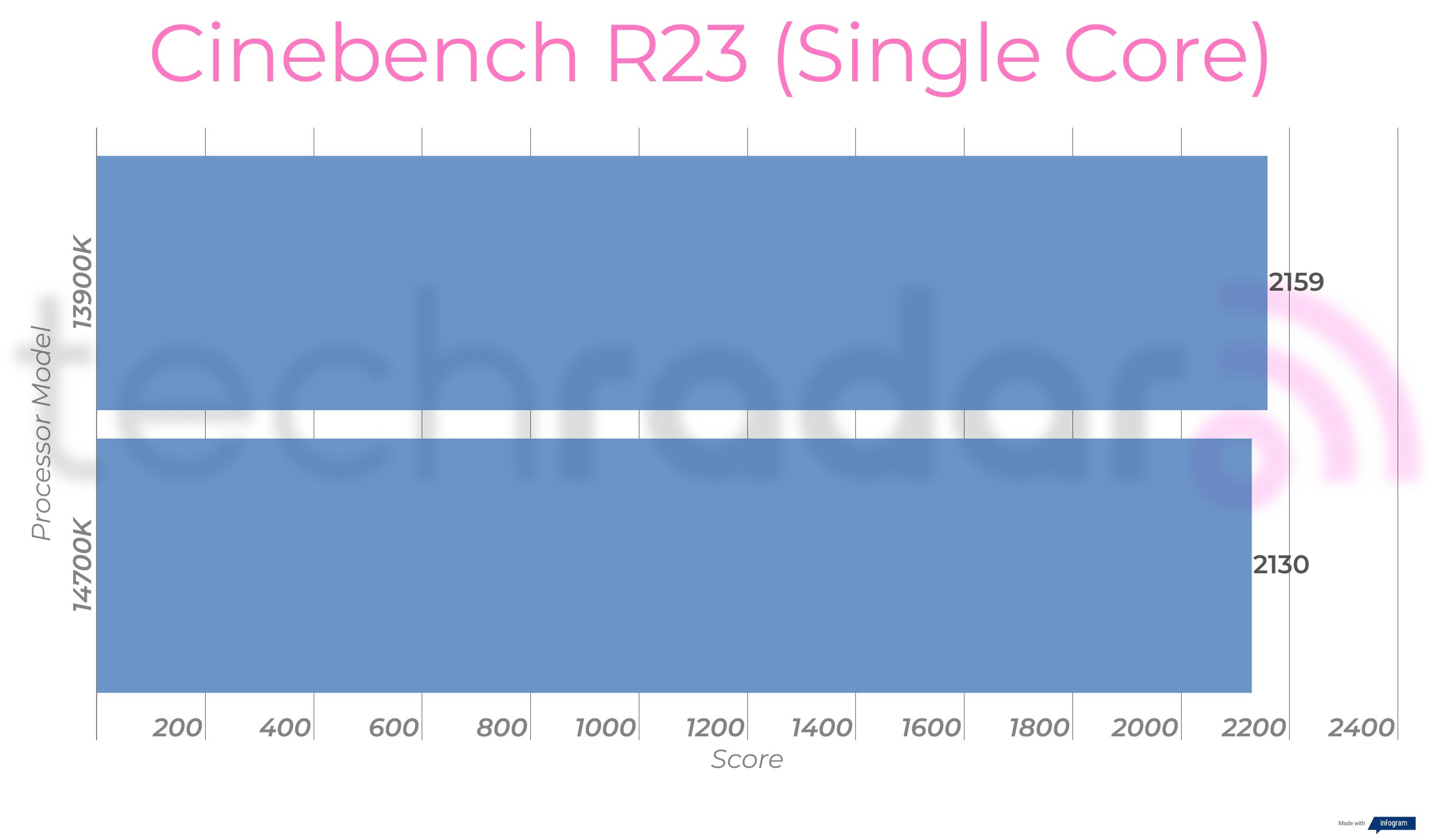
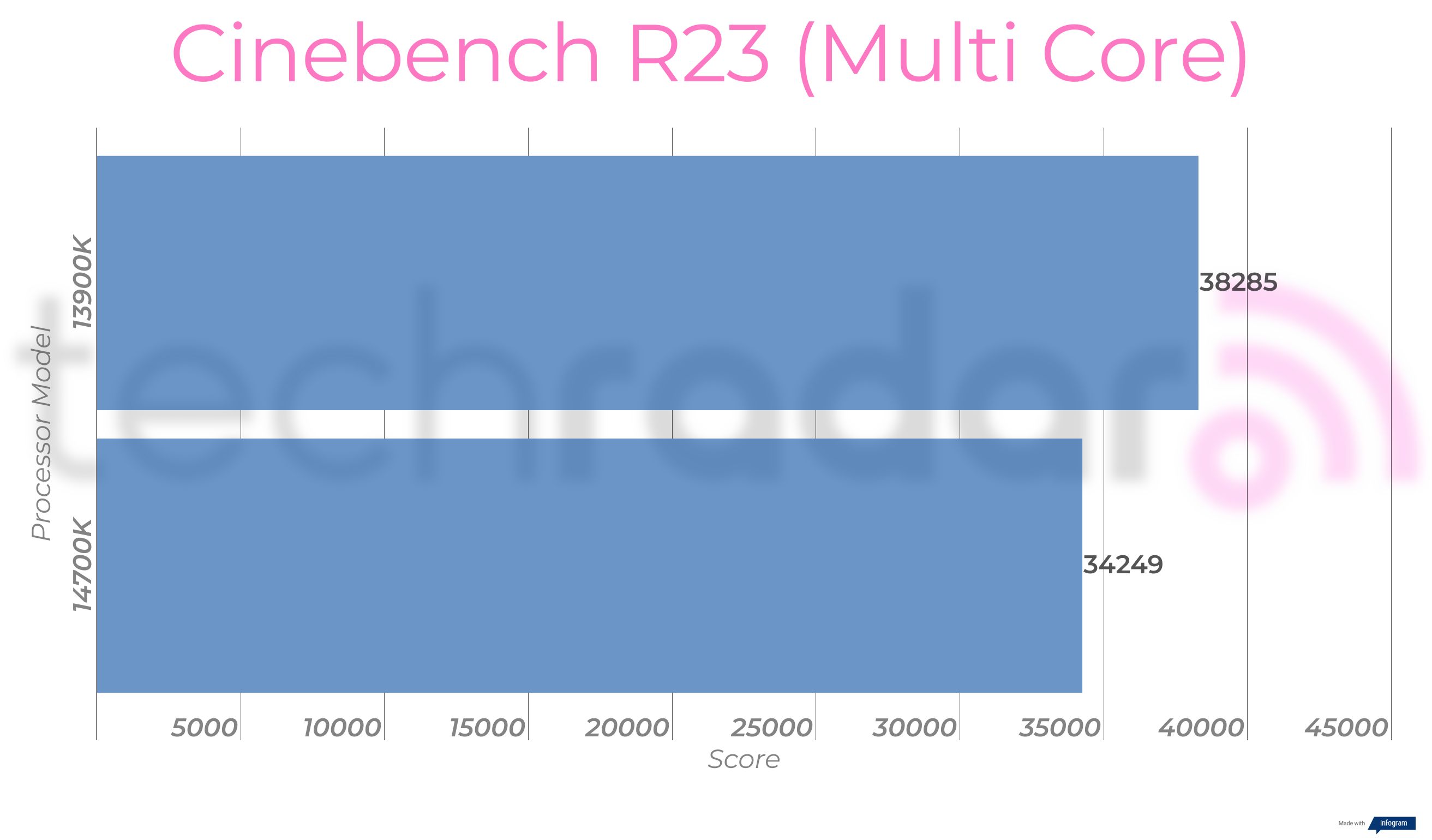
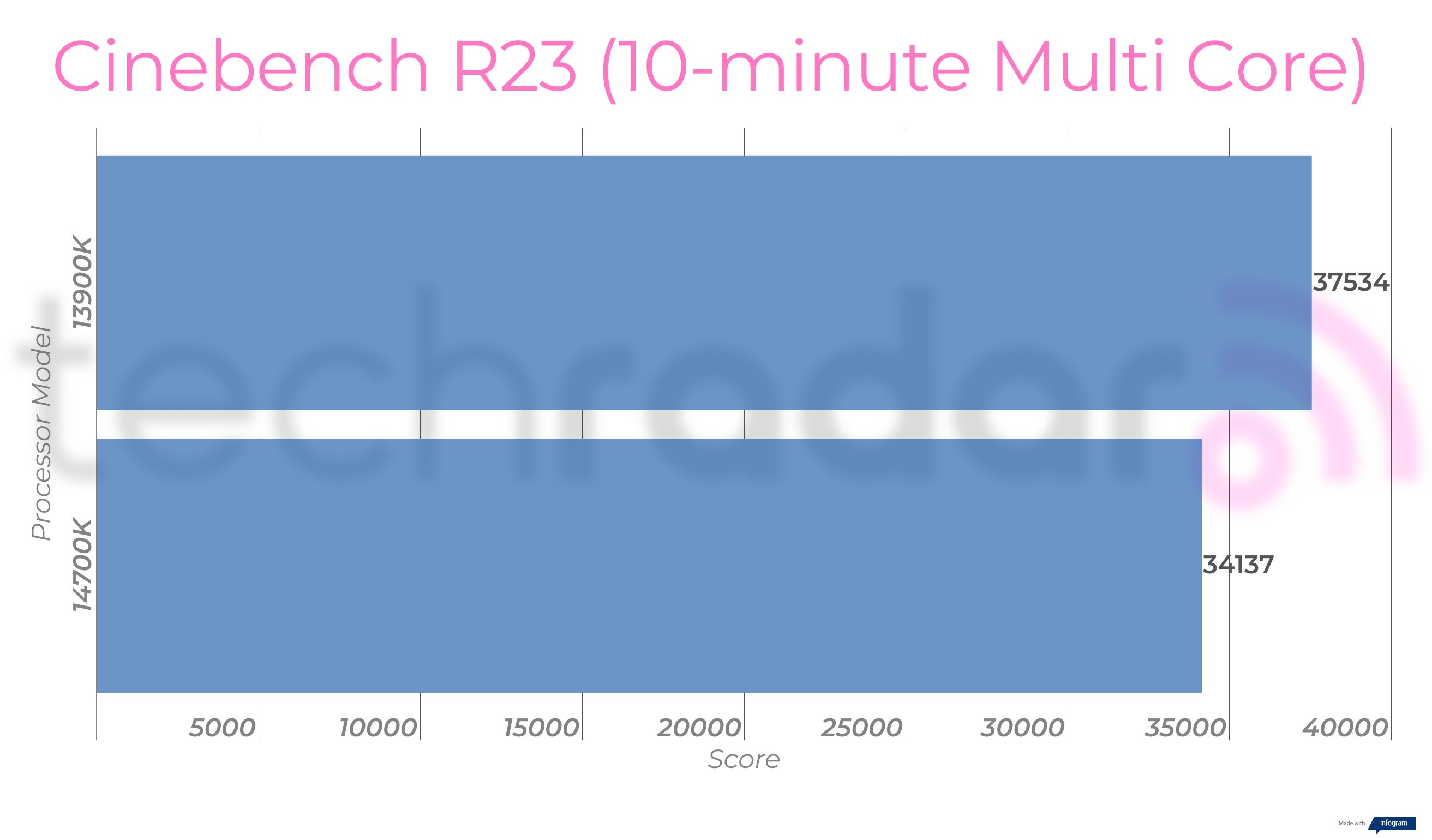
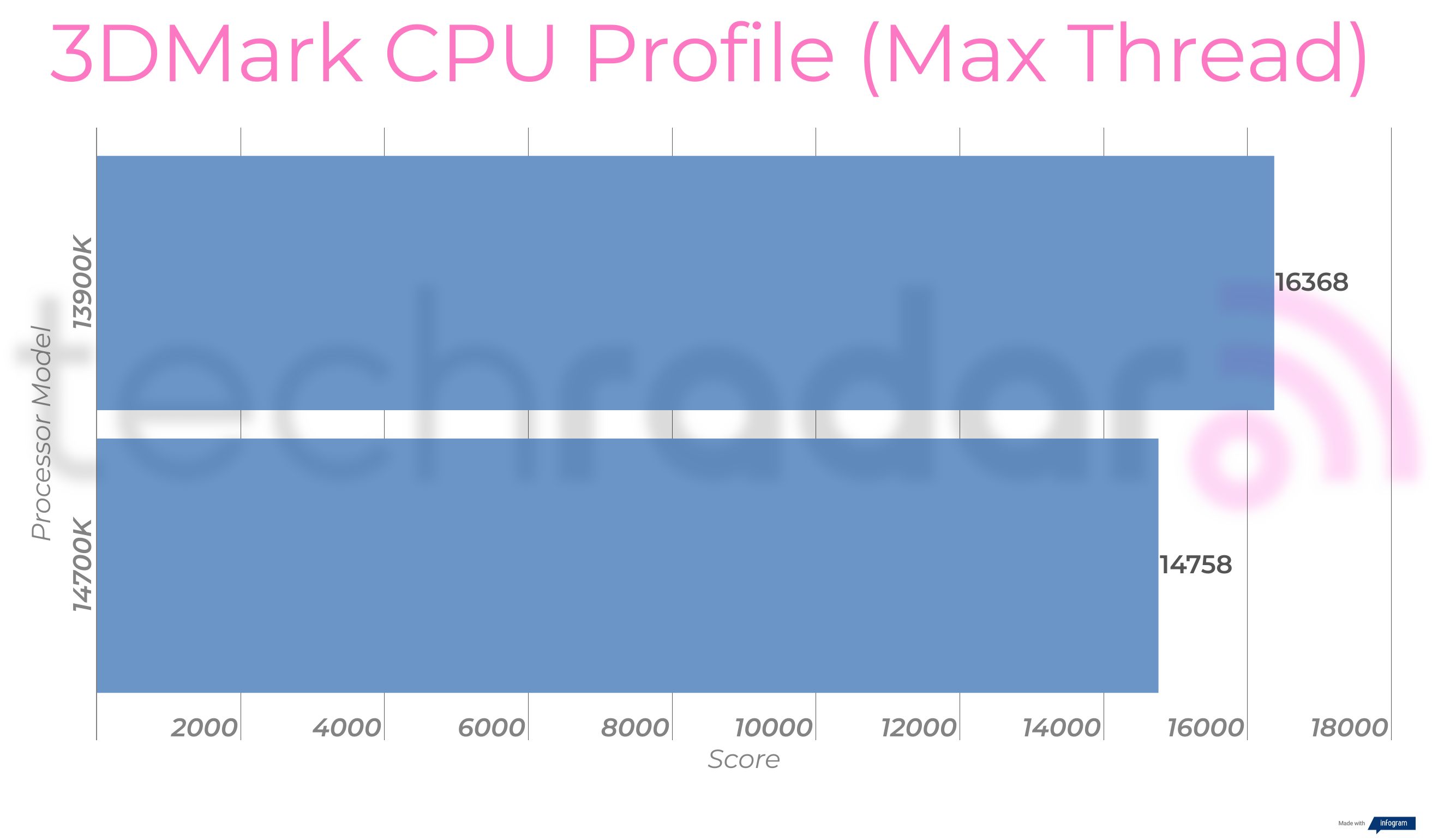
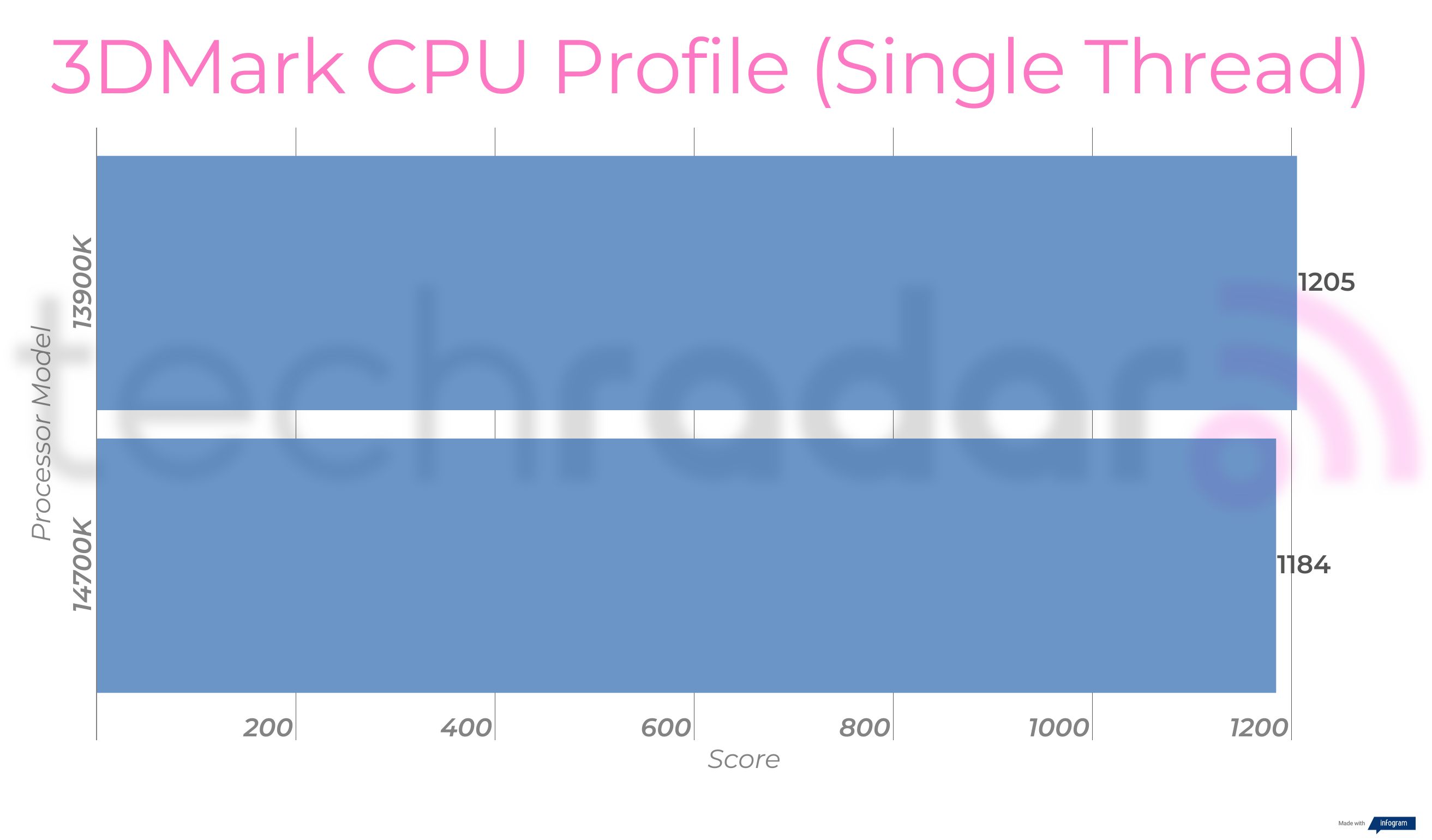
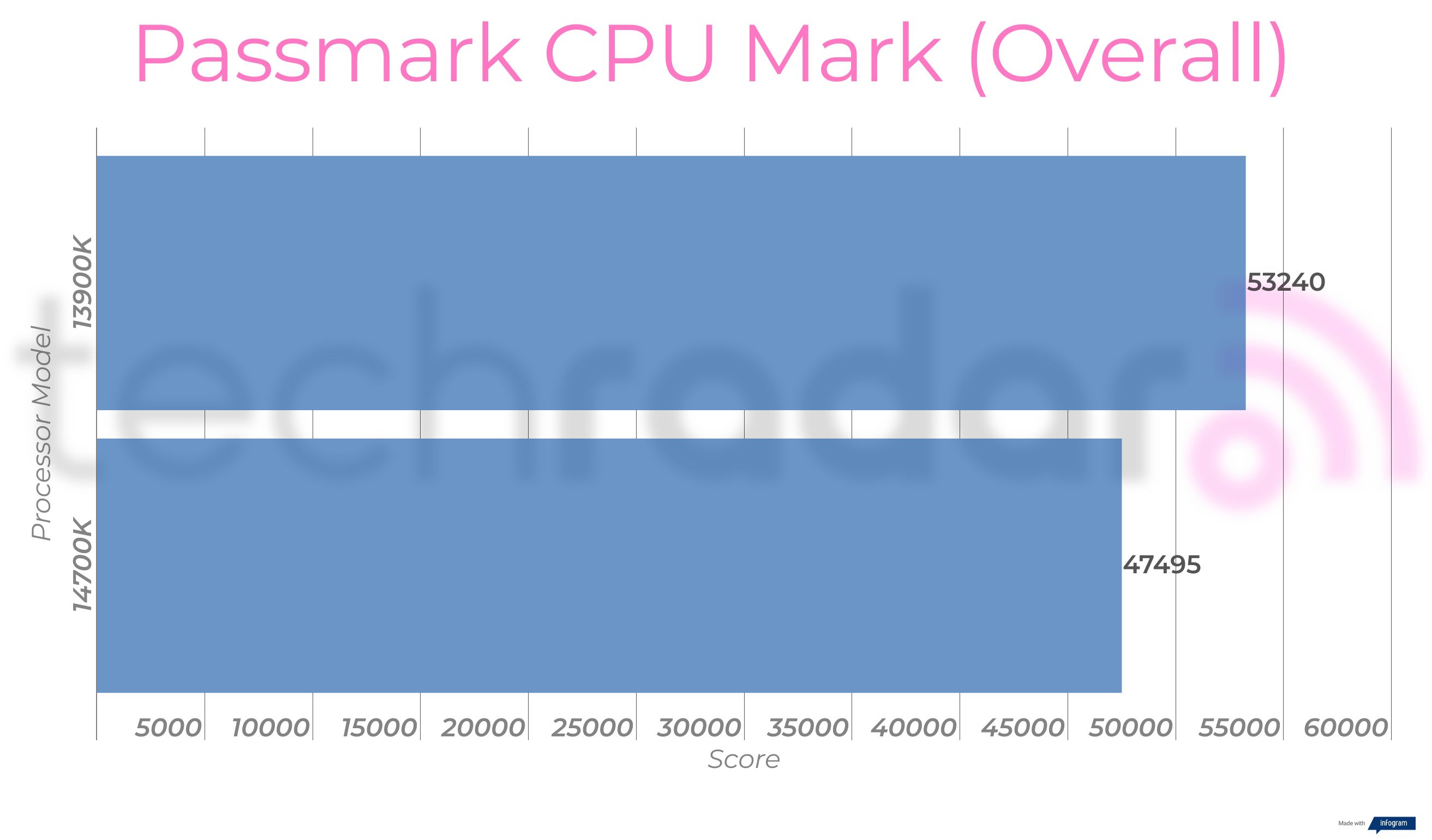
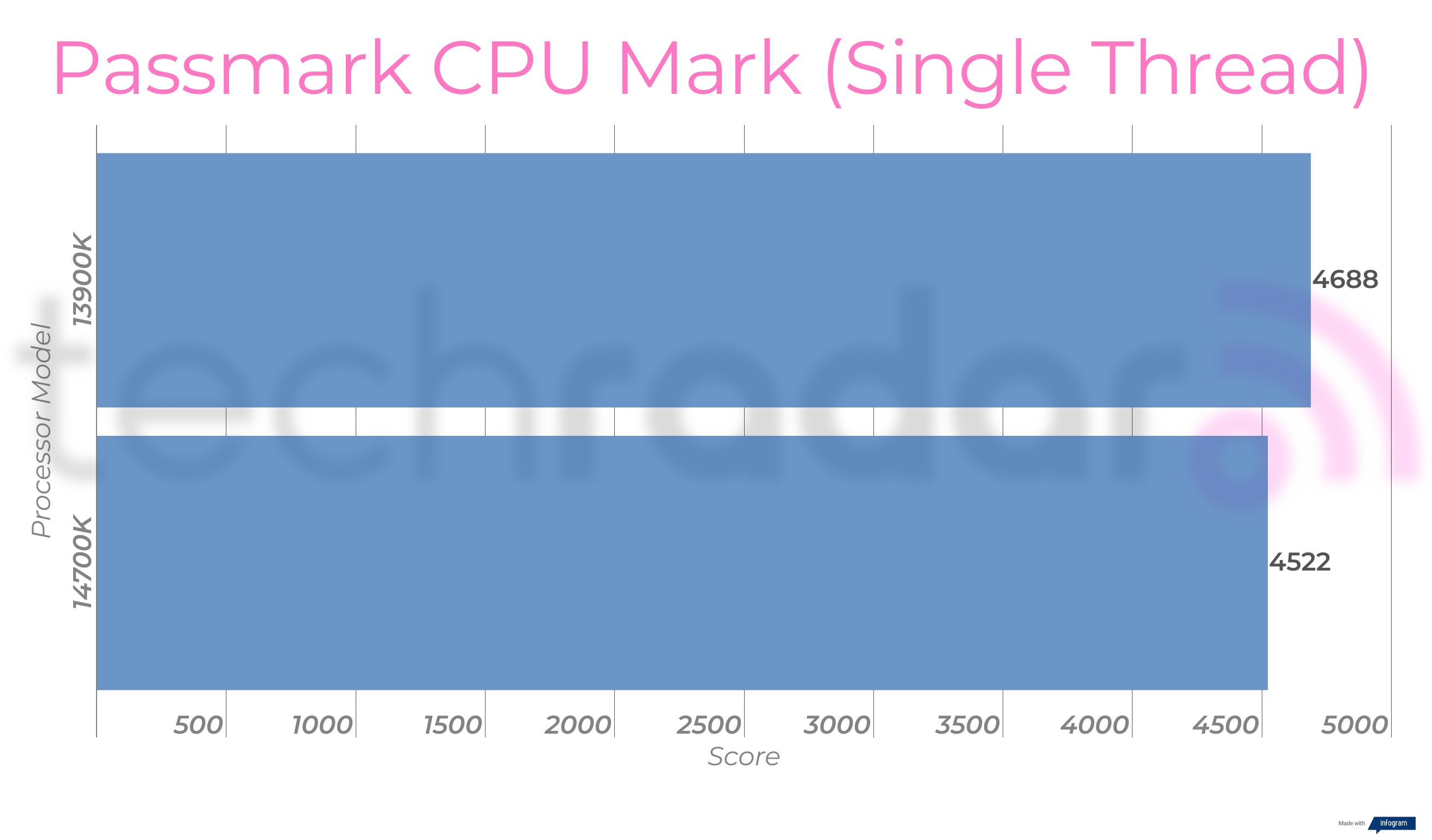
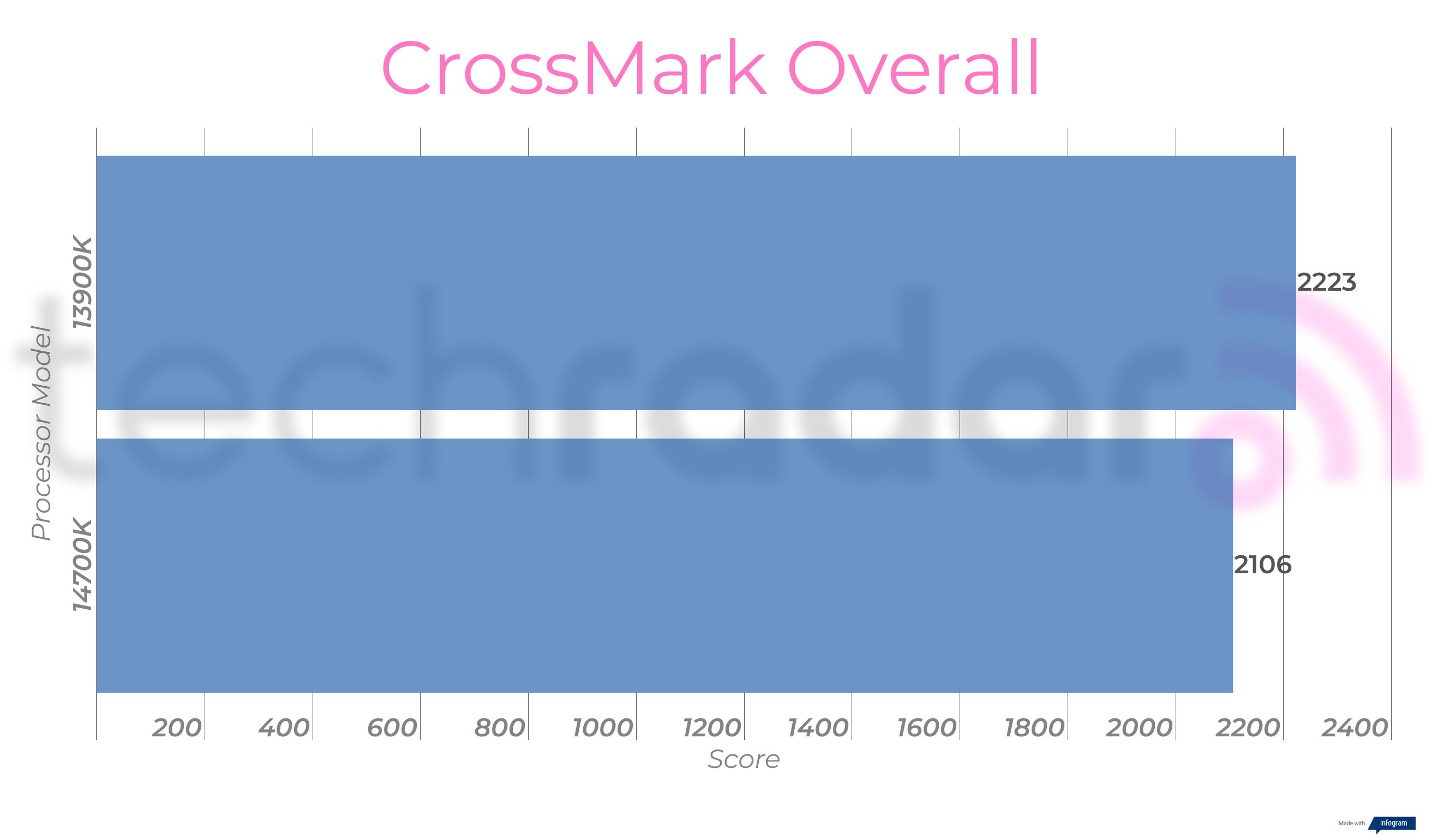
The margins are very thin with the Intel Core i7-14700K effectively delivering i9-class performance at least in terms of single-core functionality judging by our testing. Multi core is where the gap widened a little, but not as dramatically as the hardware differences would initially have you believe.
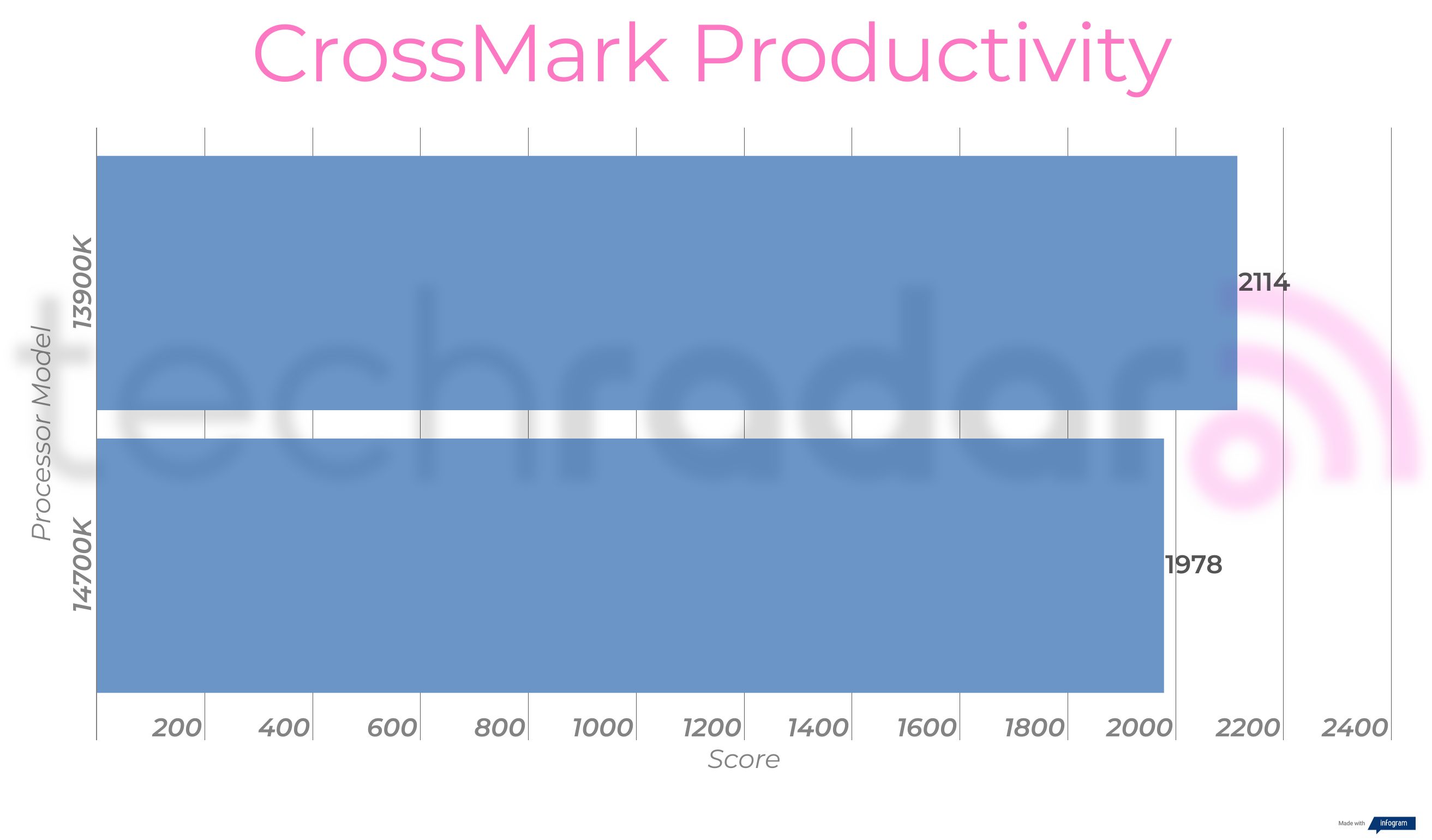
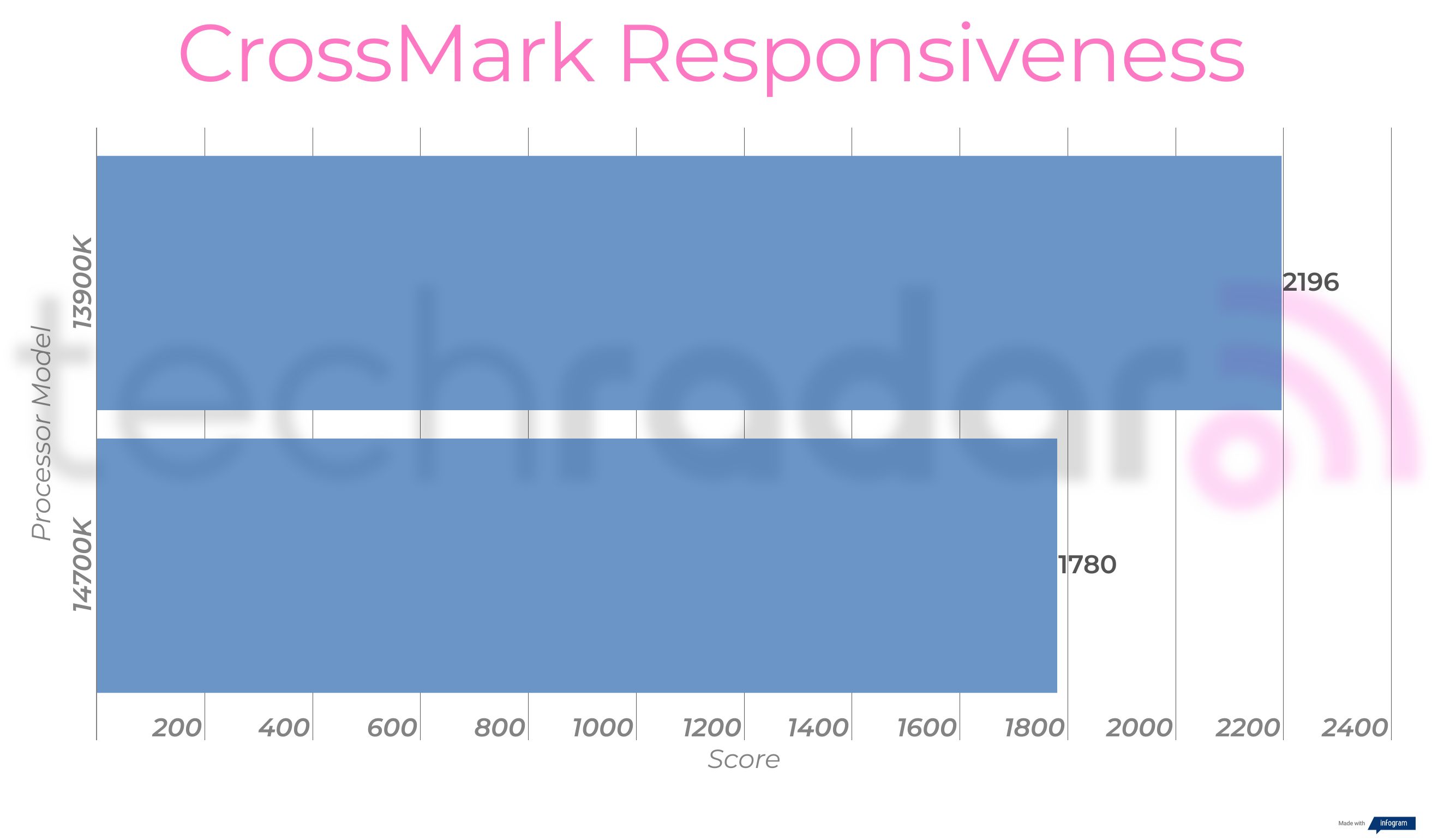
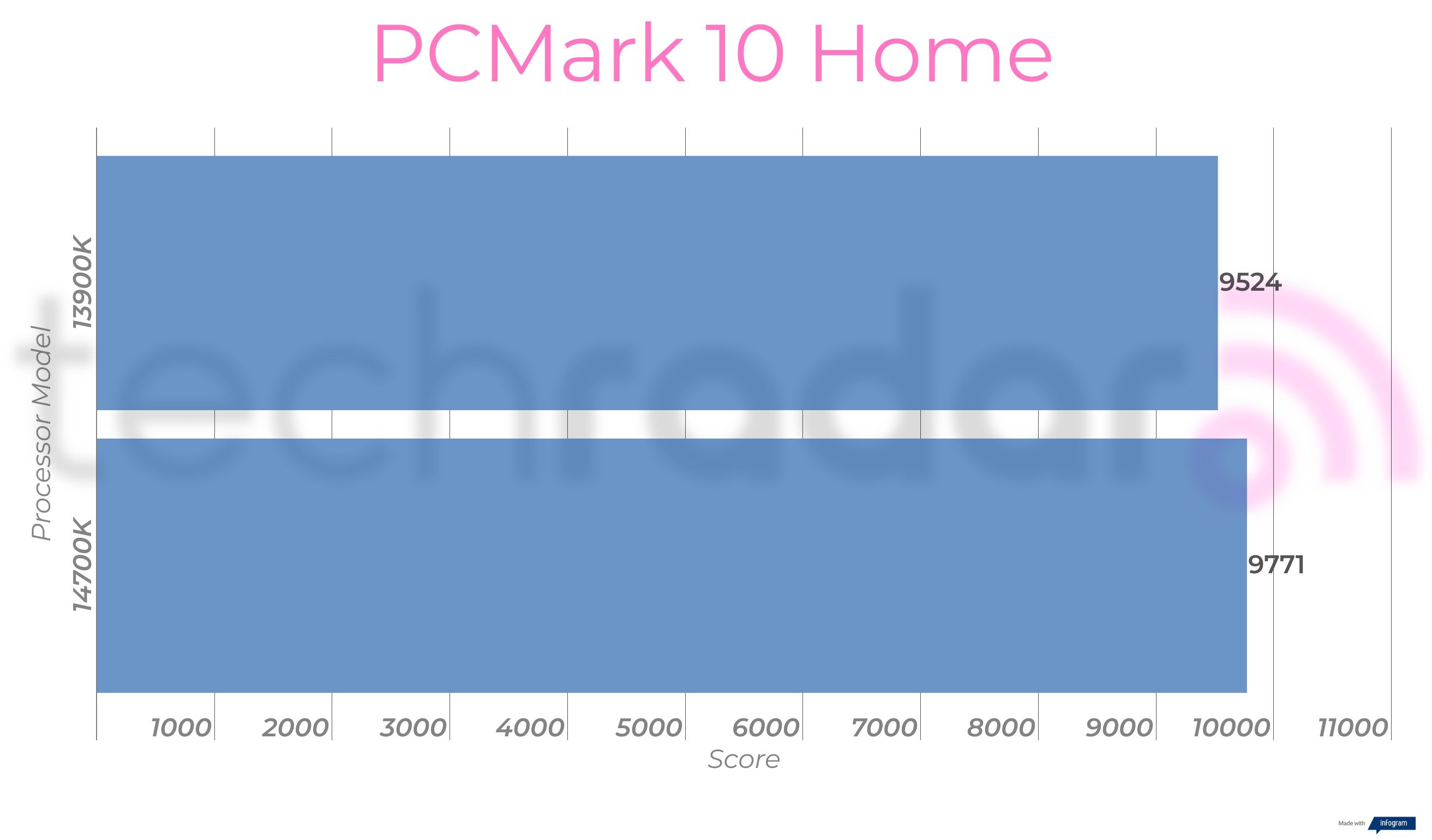
Productivity tasks saw a fairly even split between 14700K and 13900K with the previous generation i9 taking a slight lead in our testing from as low as a 2% increase to a 26% lead. Still very comparable when all is said here.
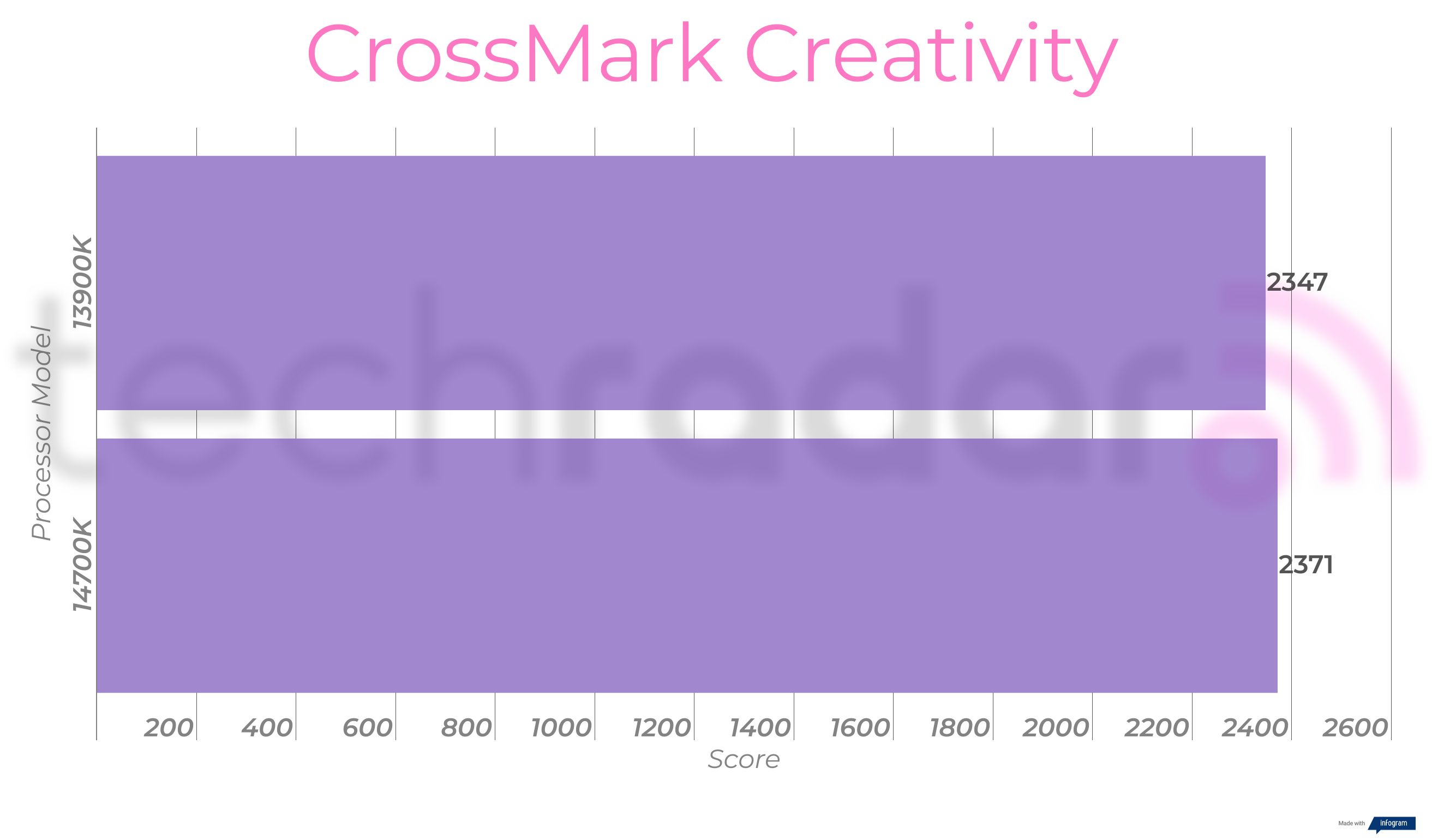
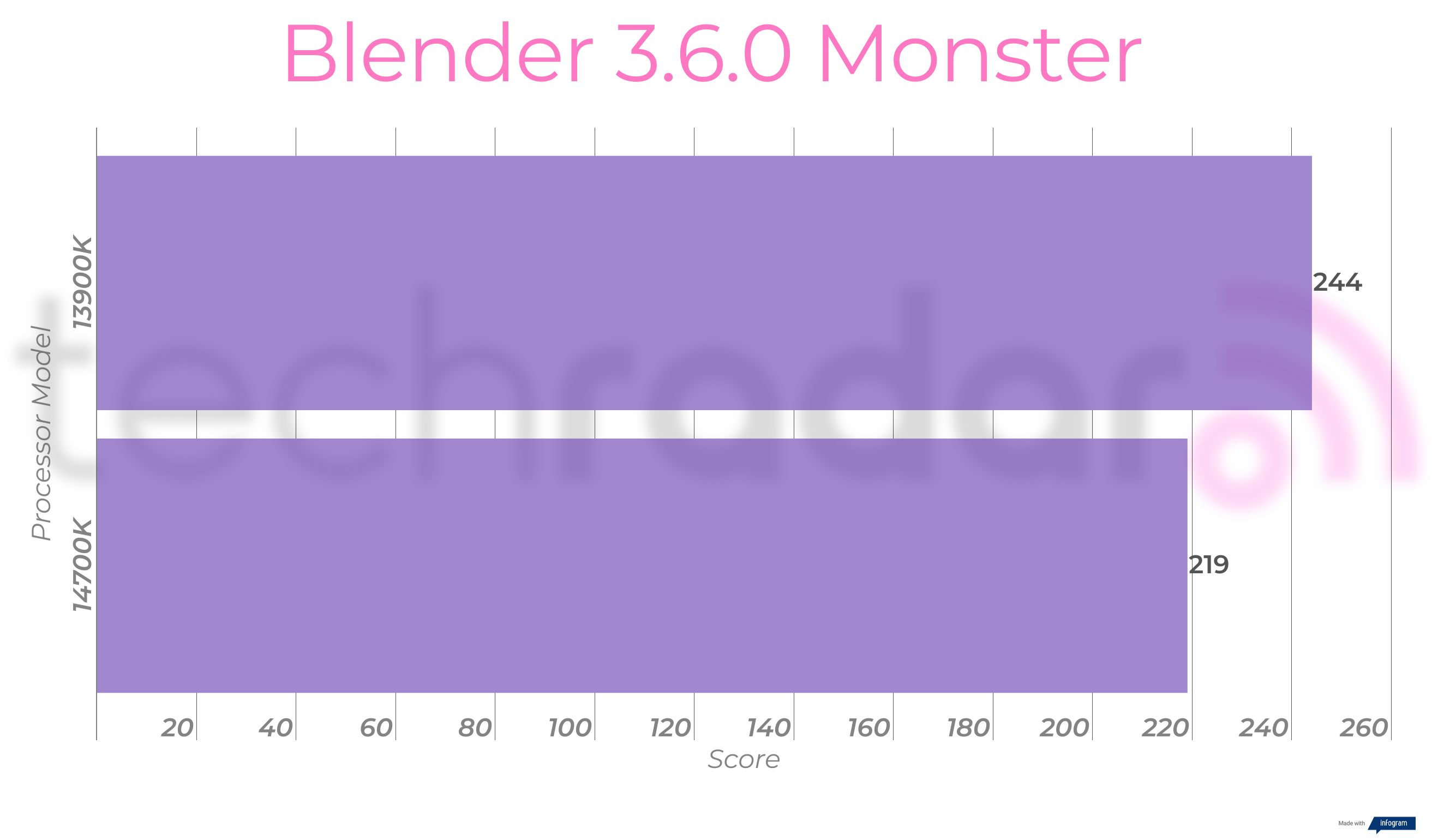
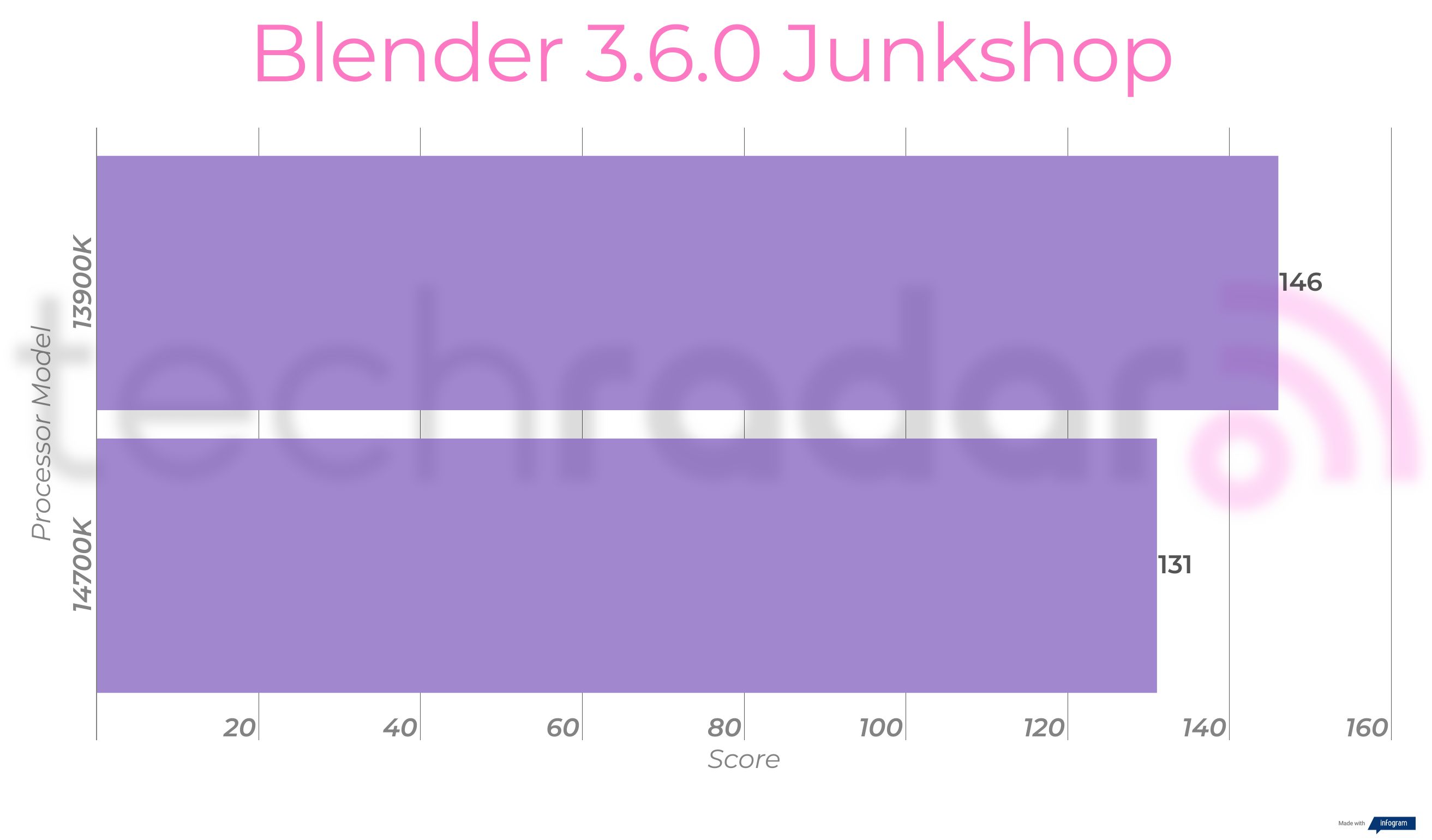
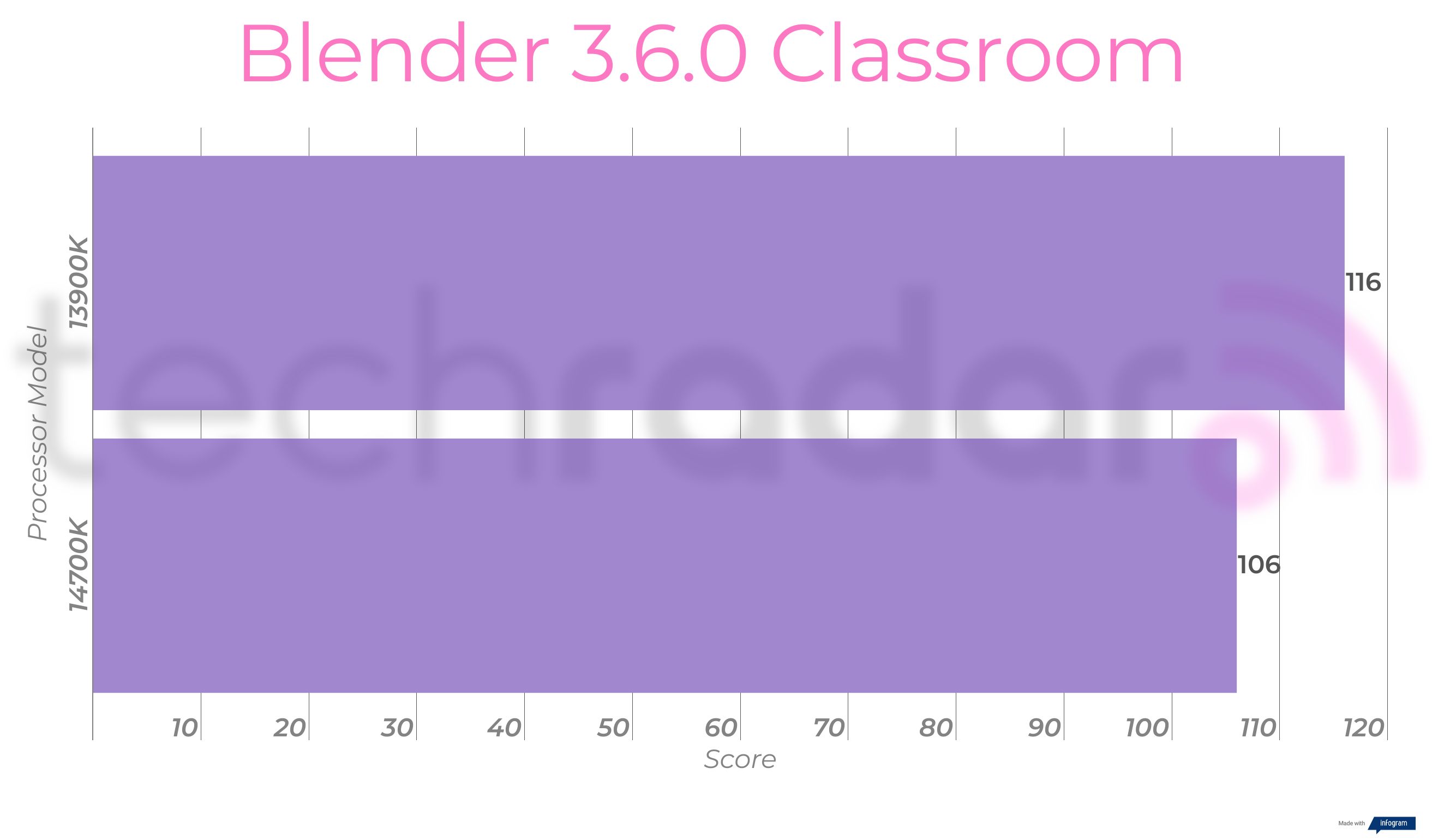
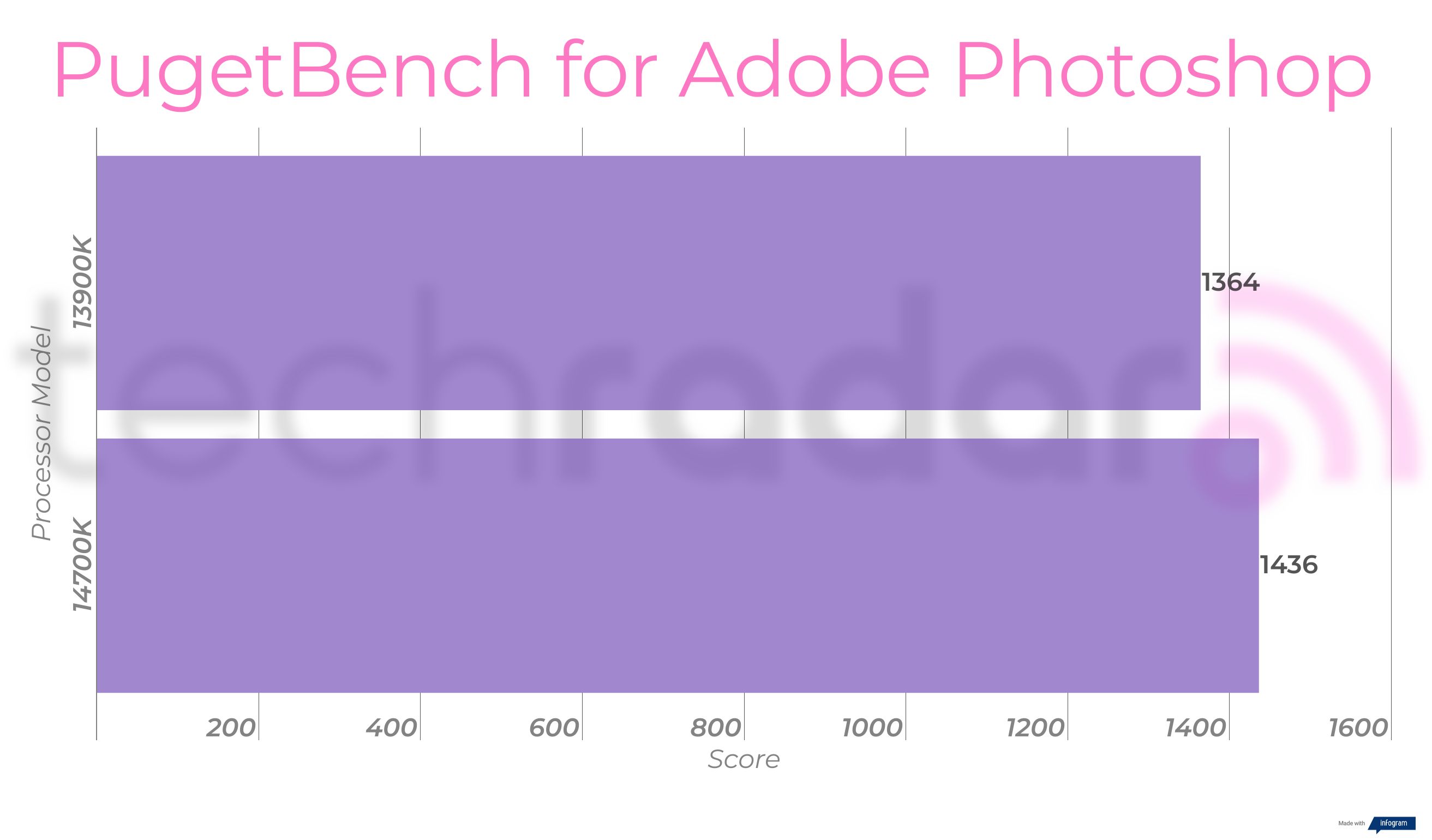
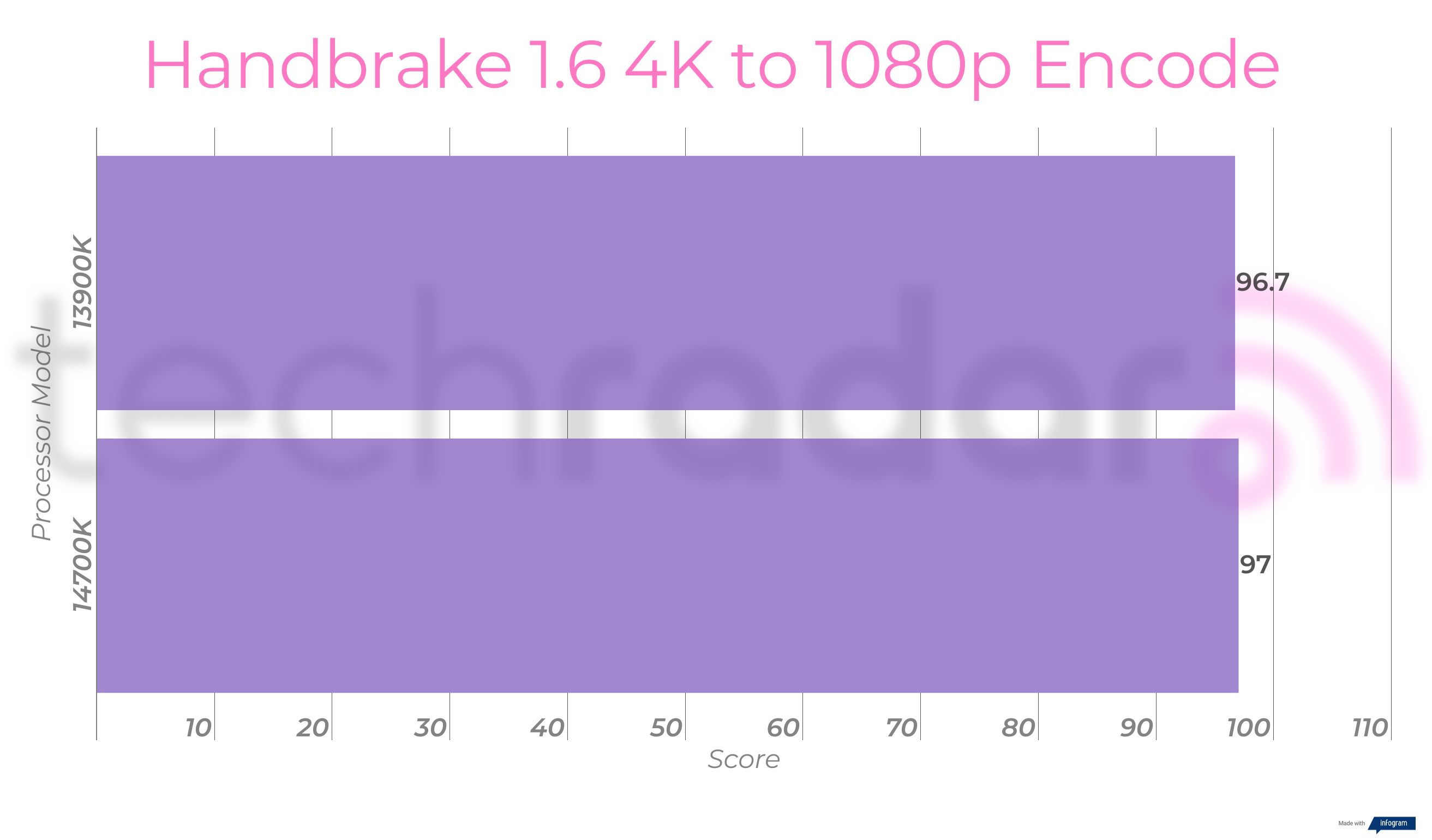
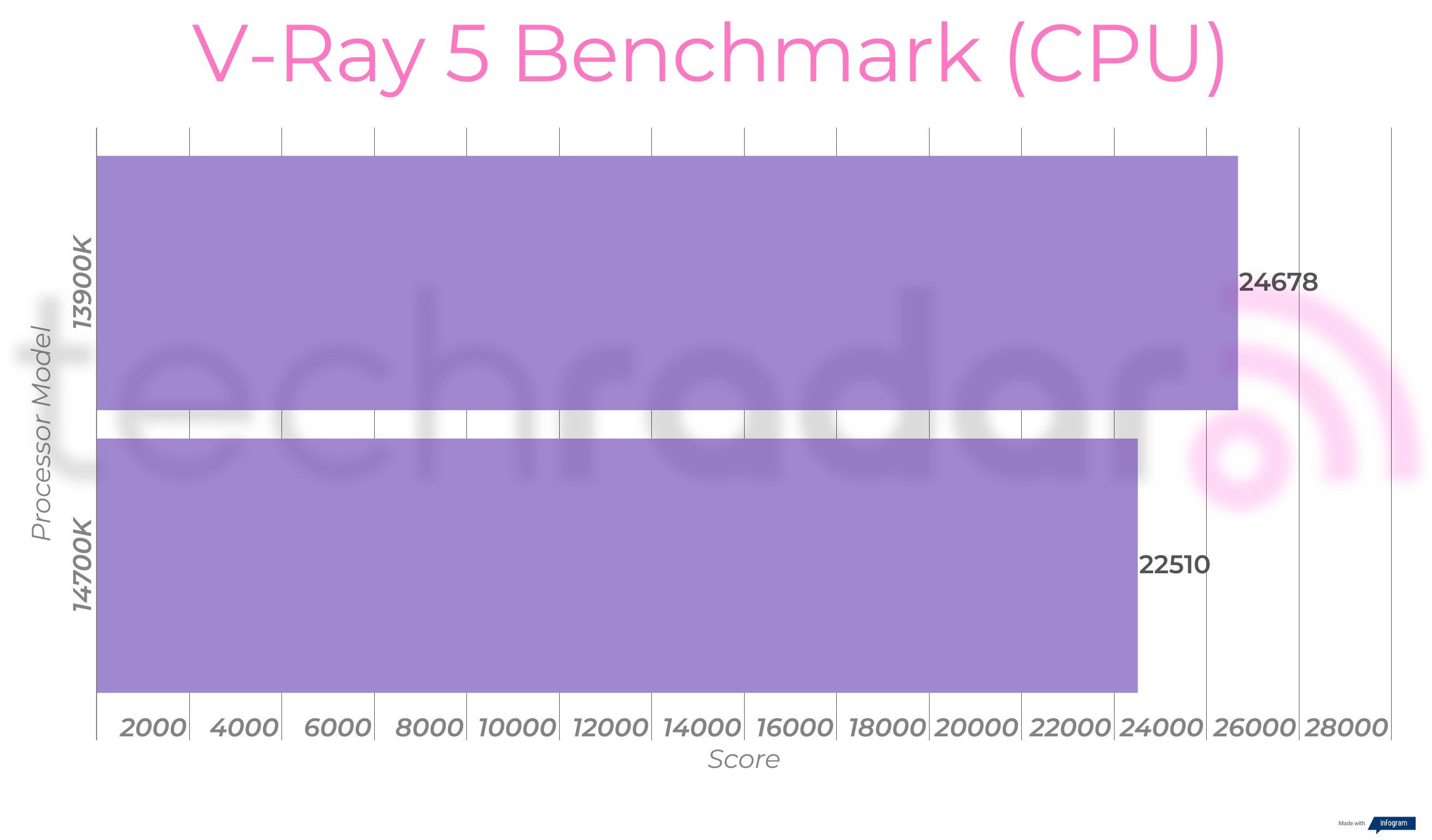
Creativity benchmarks reveal just how close the performance of the 14th Gen i7 is to the previous generation i9 when put under stress. This is most noticeable with CrossMark Creativity, Blender 3.6.0 Classroom and Handbrake with miniscule lead in favor of the 13th-Gen i9.
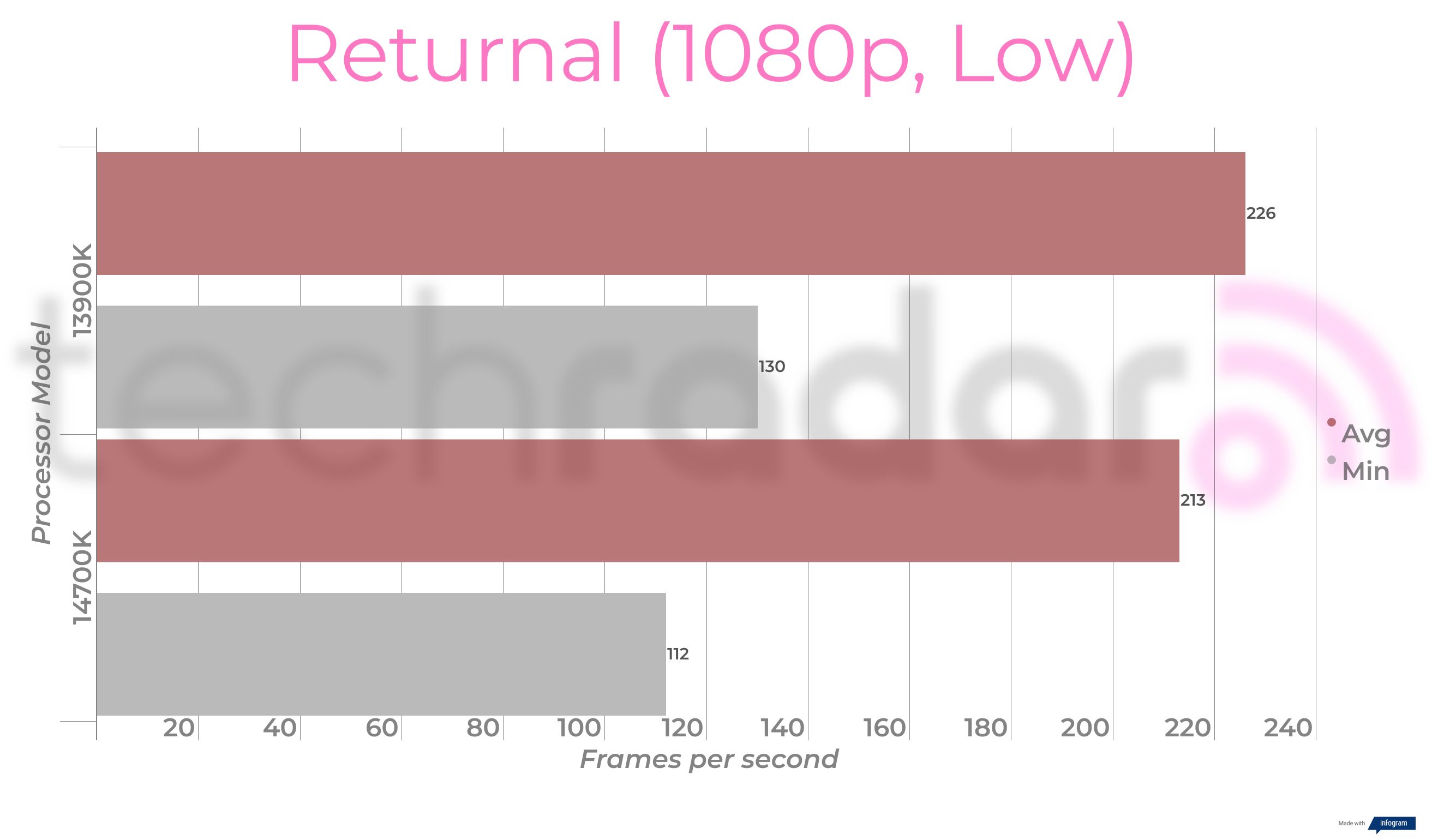
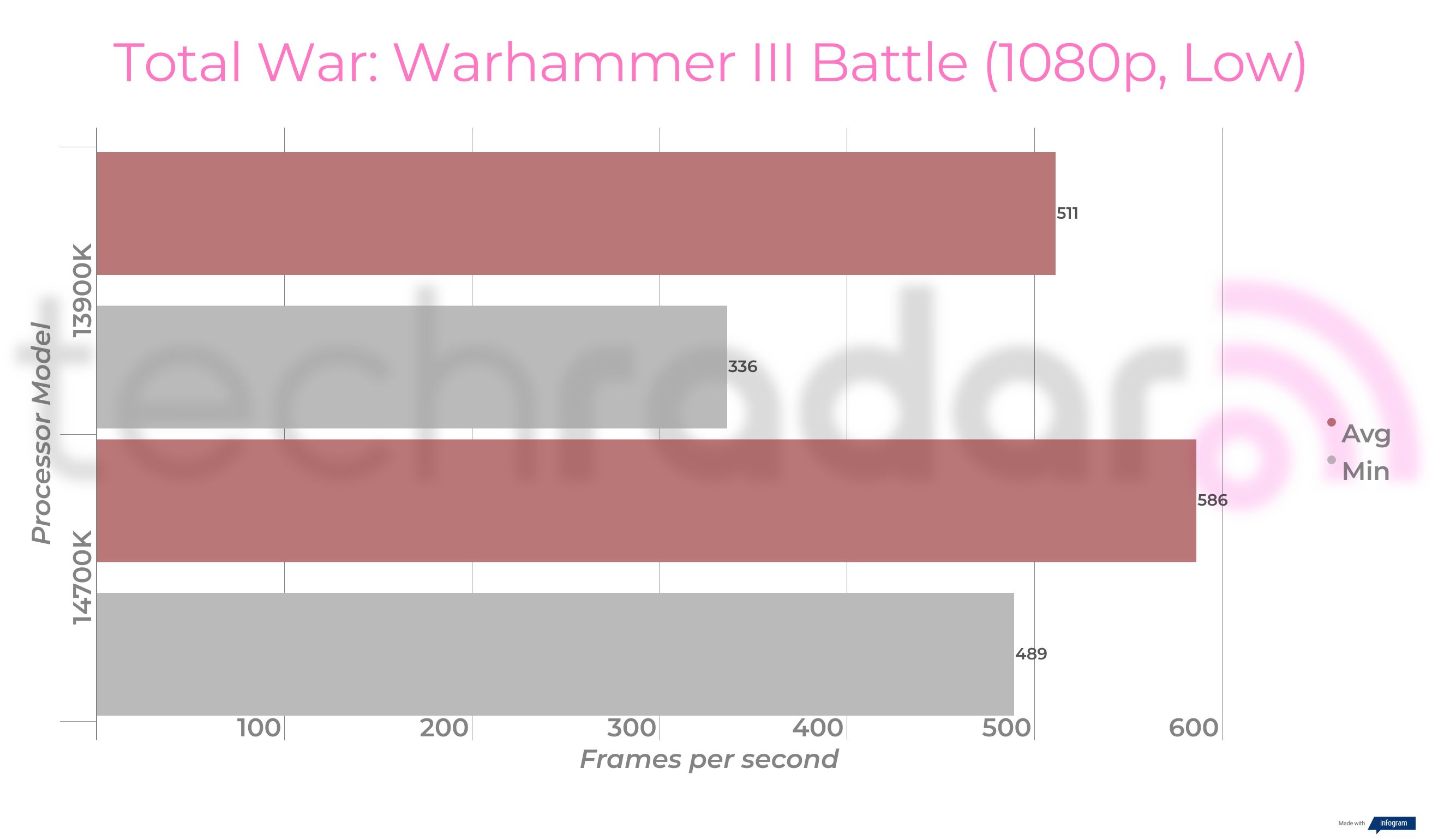
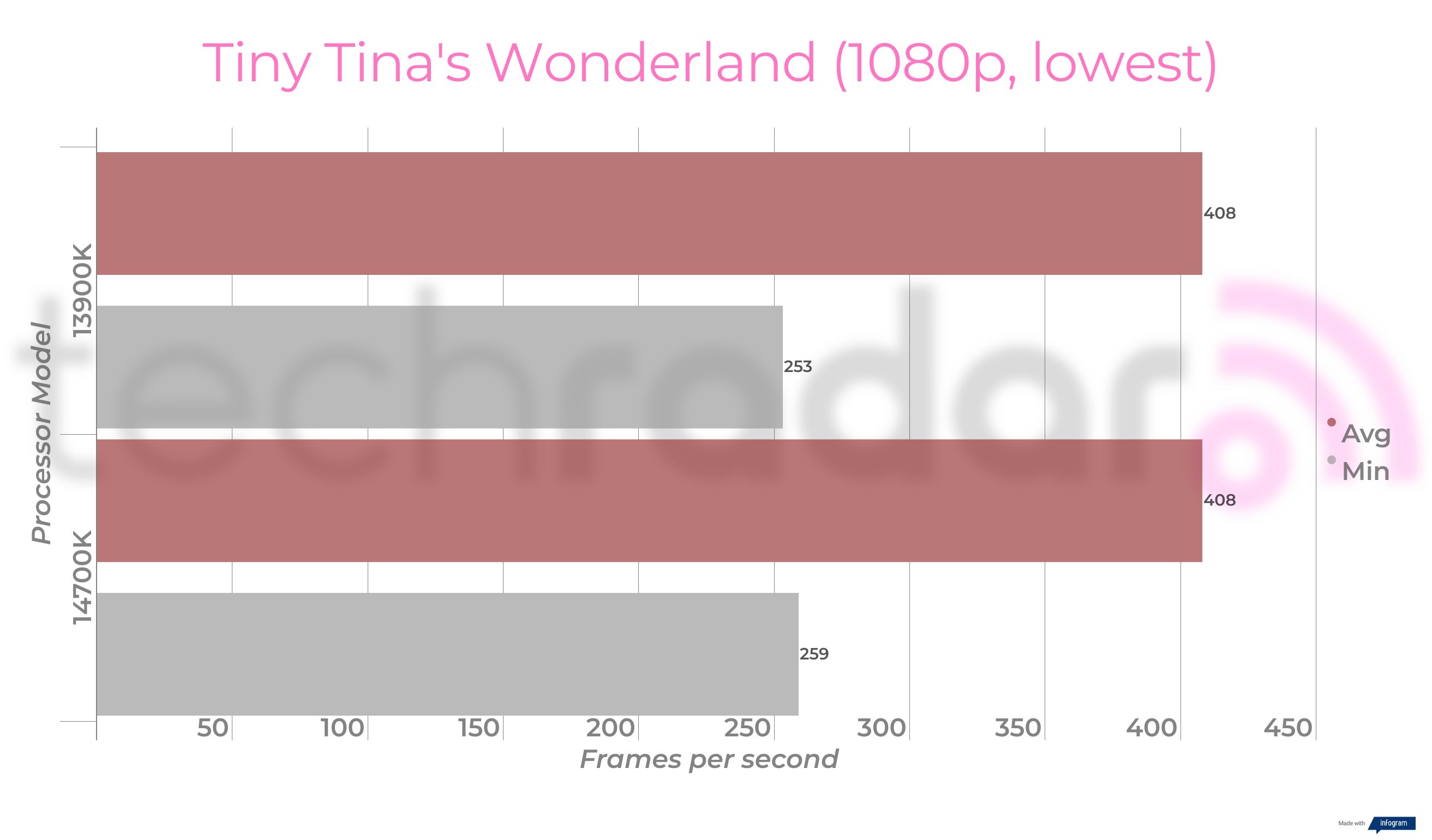
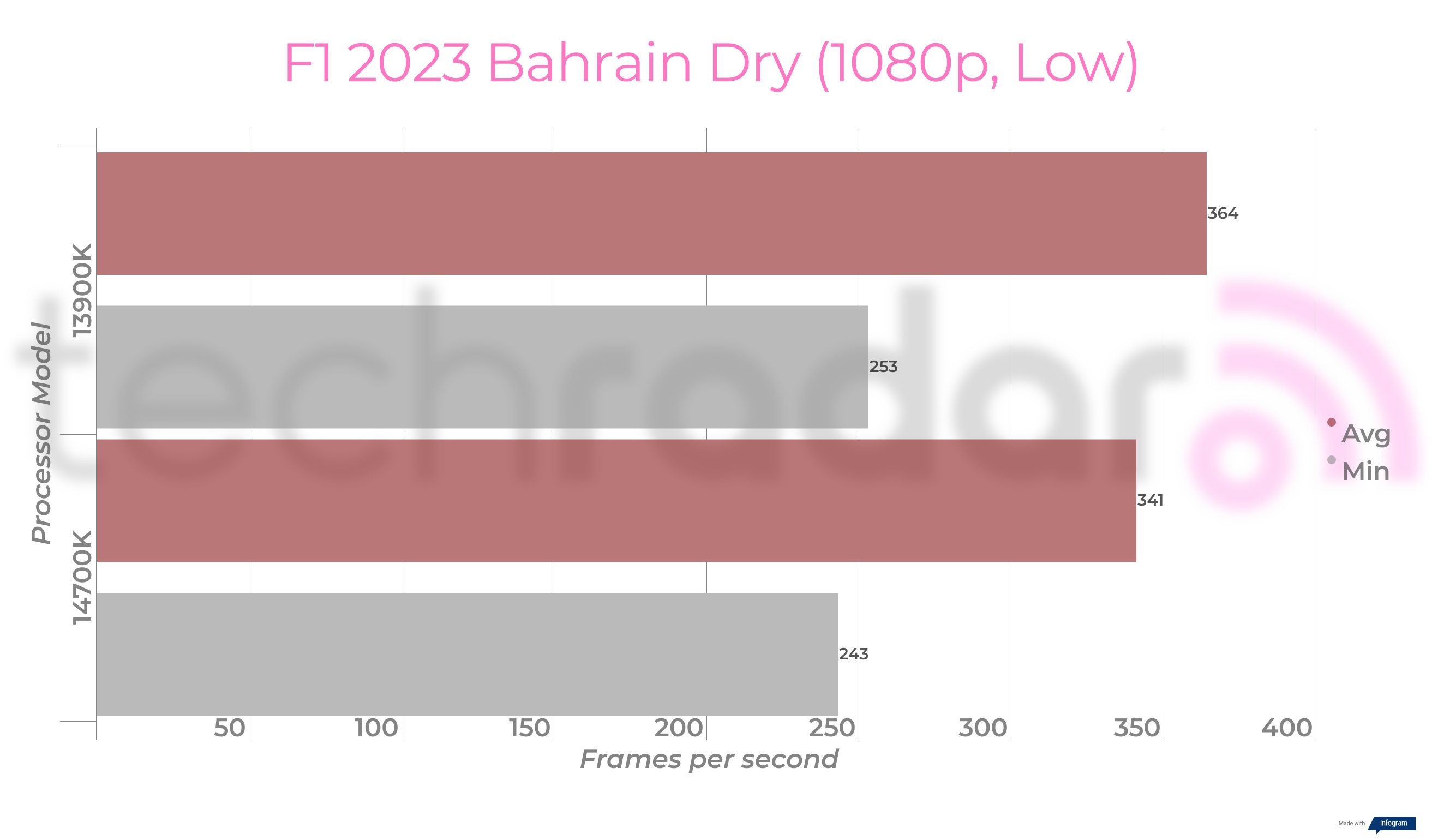
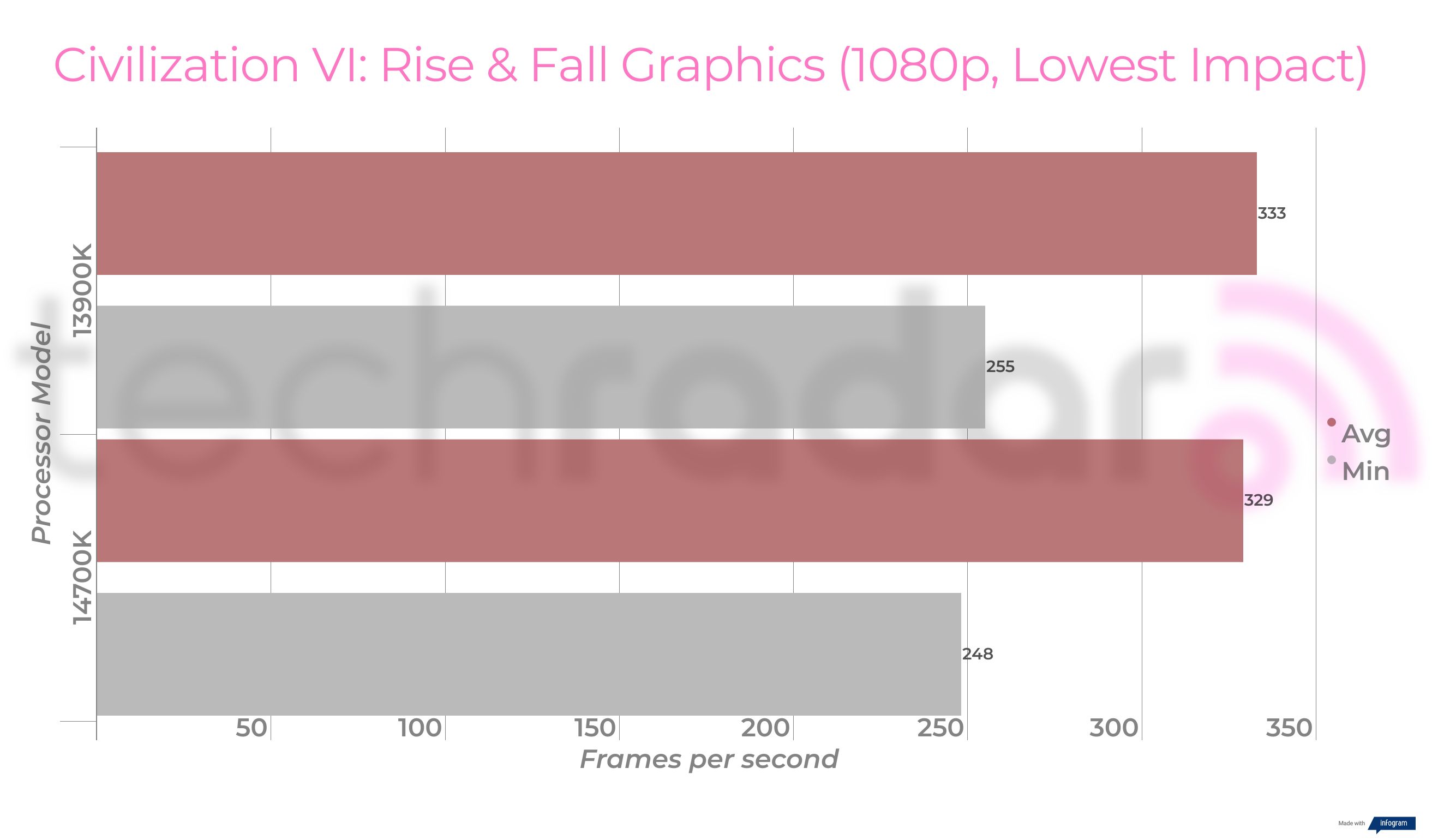
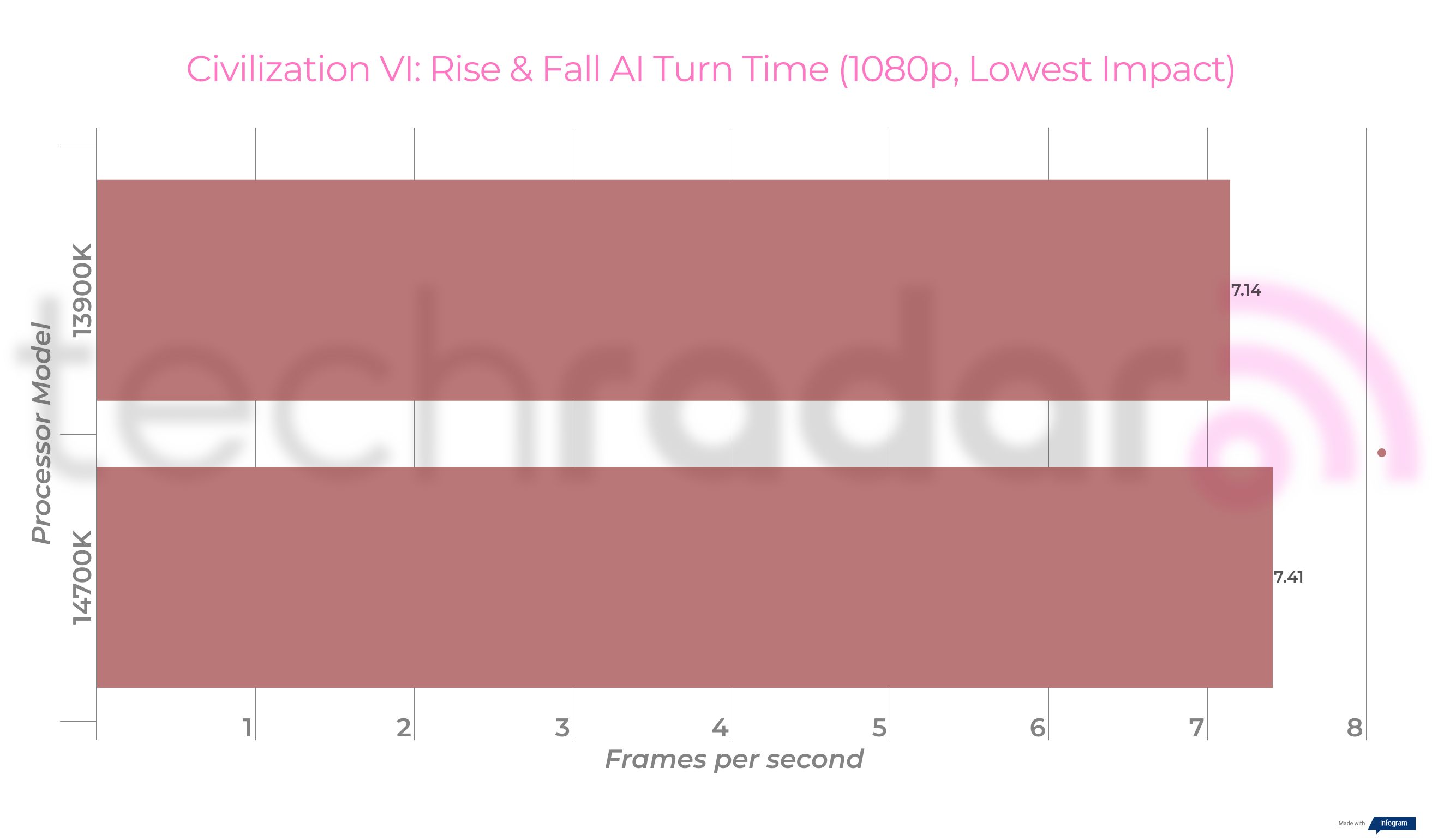
Here’s where the i7-14700K really comes into its own with gaming performance which is significantly better than its predecessor, the 13700K, and numbers which in some cases even surpass what the 13900K was able to achieve. There were instances where the older i9 CPU comes out on top such as with Returnal and F1 2023, but overall, you’re getting i9 performance for the price of an i7 here.
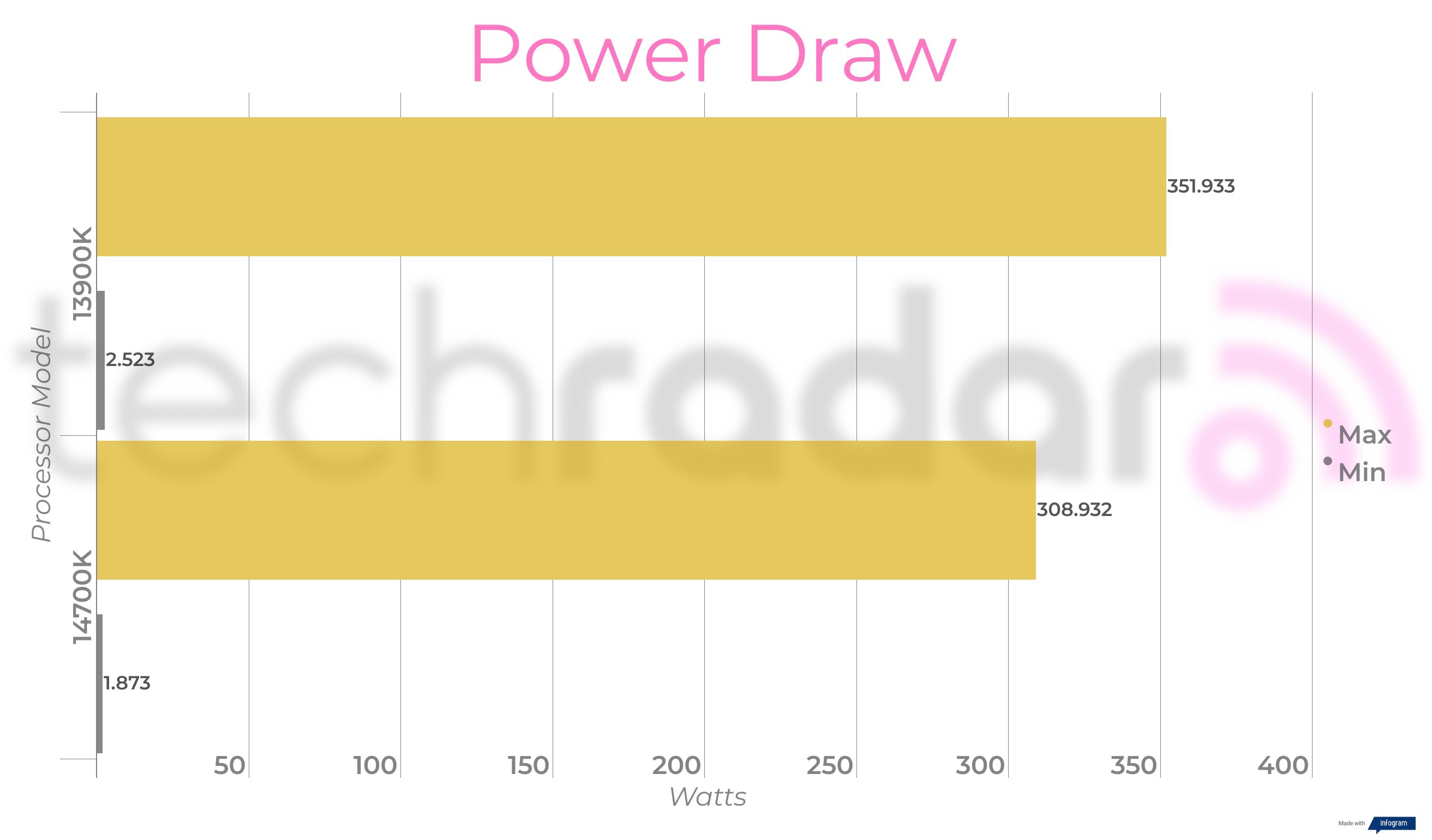
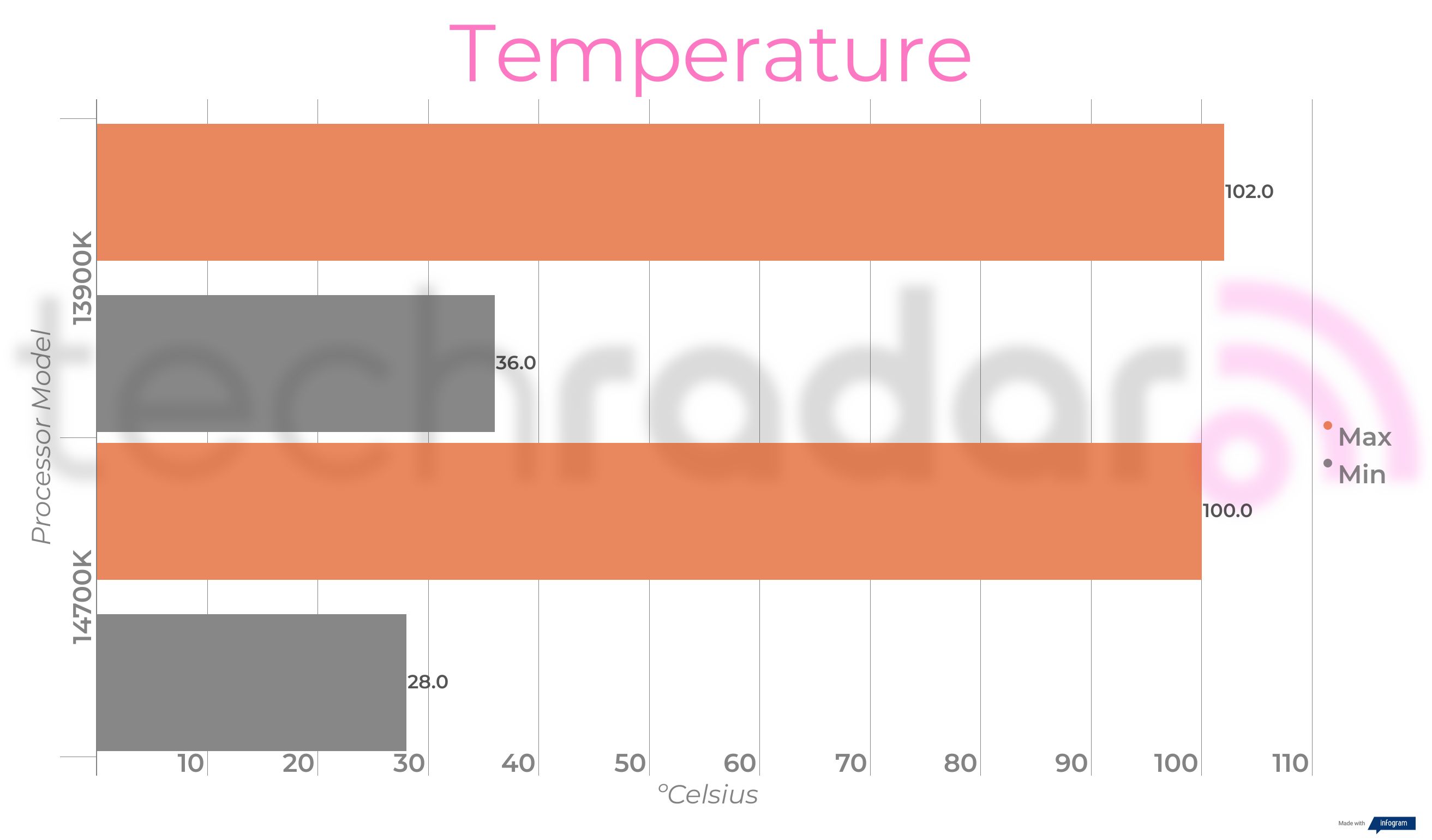
Comparing the thermal performance and the power draw with 14700K and 13900K reveals that the 14th Gen i7 was more power efficient than the older 13th Gen i9. This is also echoed in the thermals where the 14700K ran significantly cooler under minimum loud and peaked a little cooler when under serious stress.
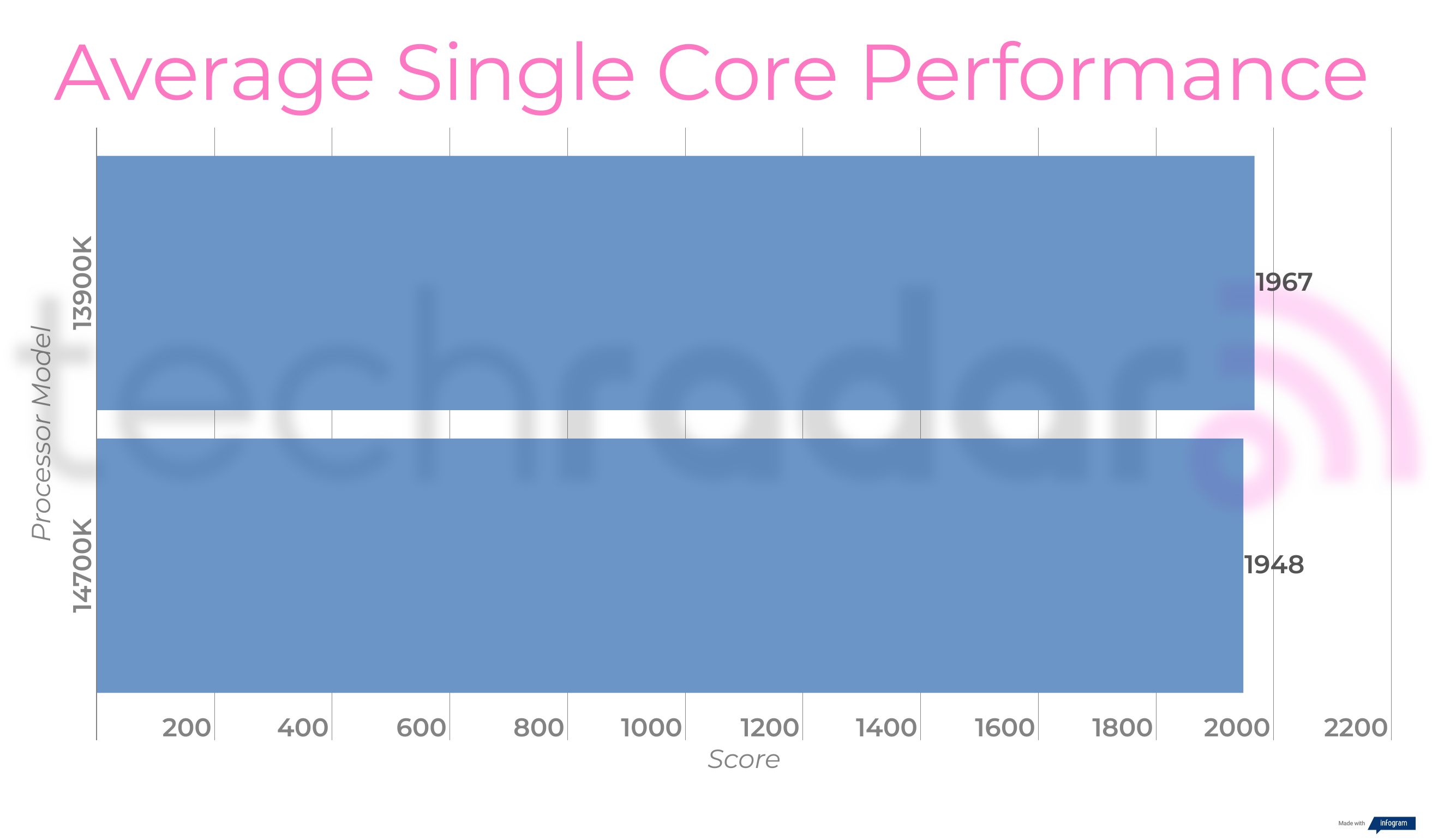
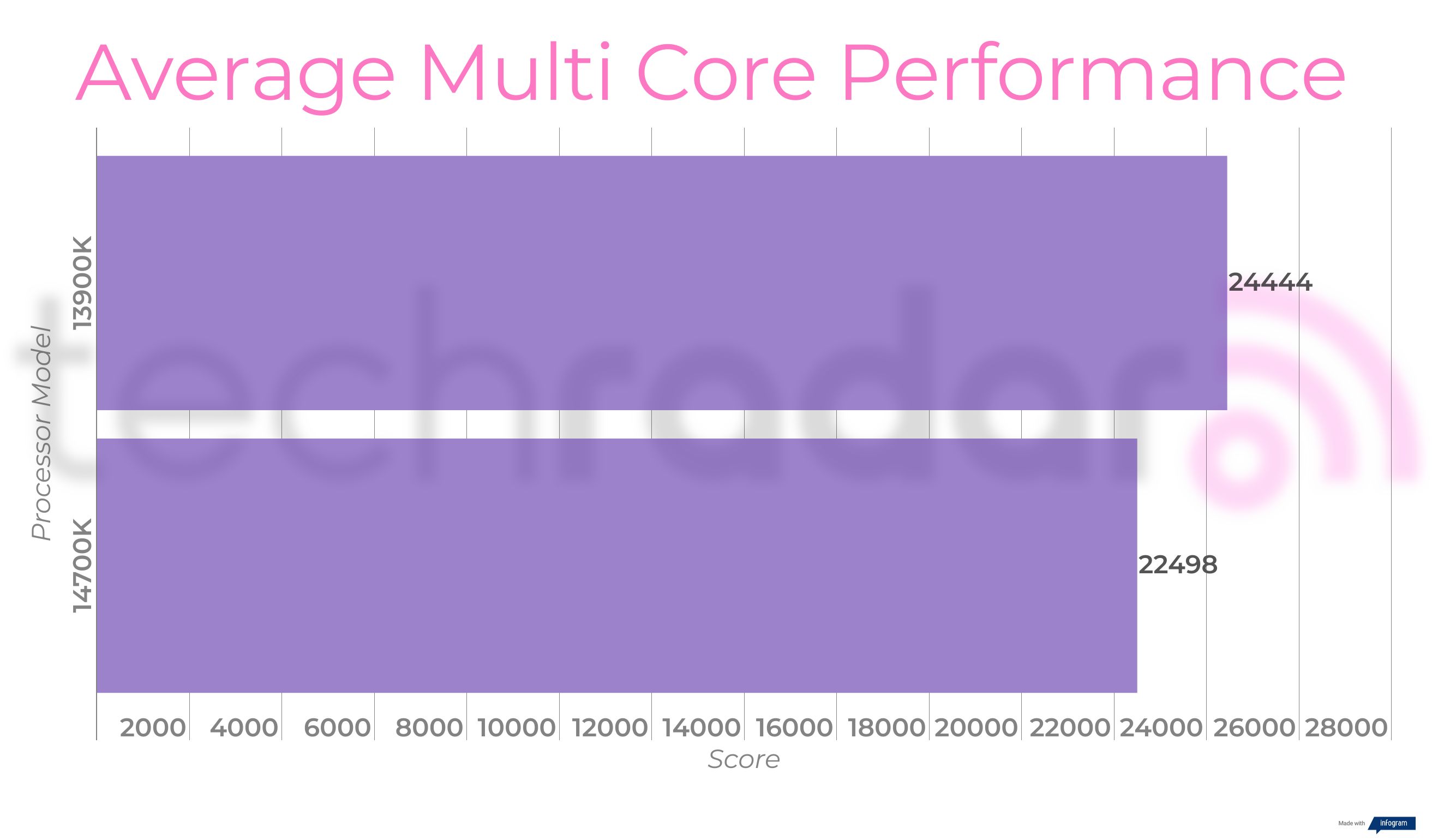
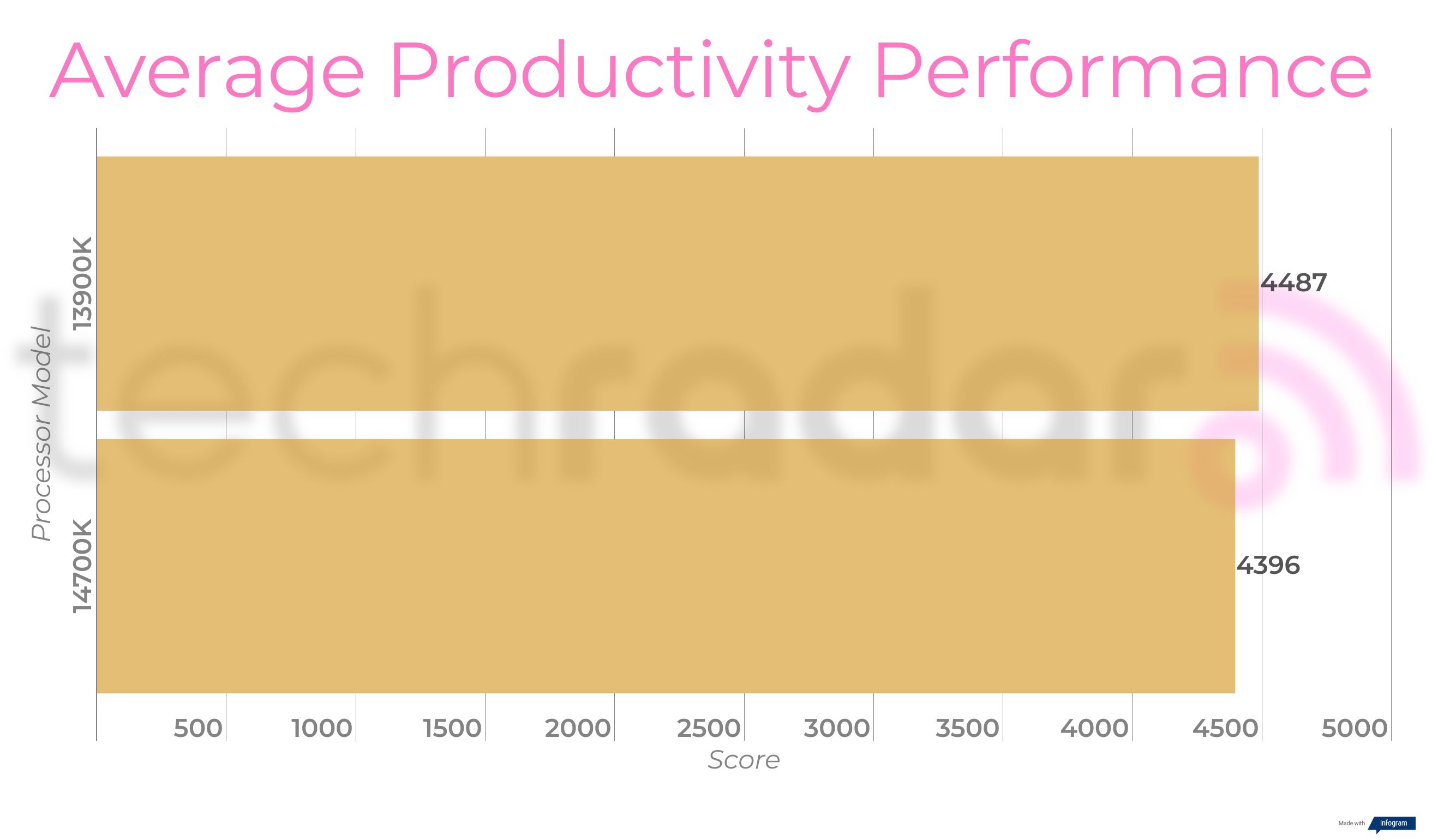
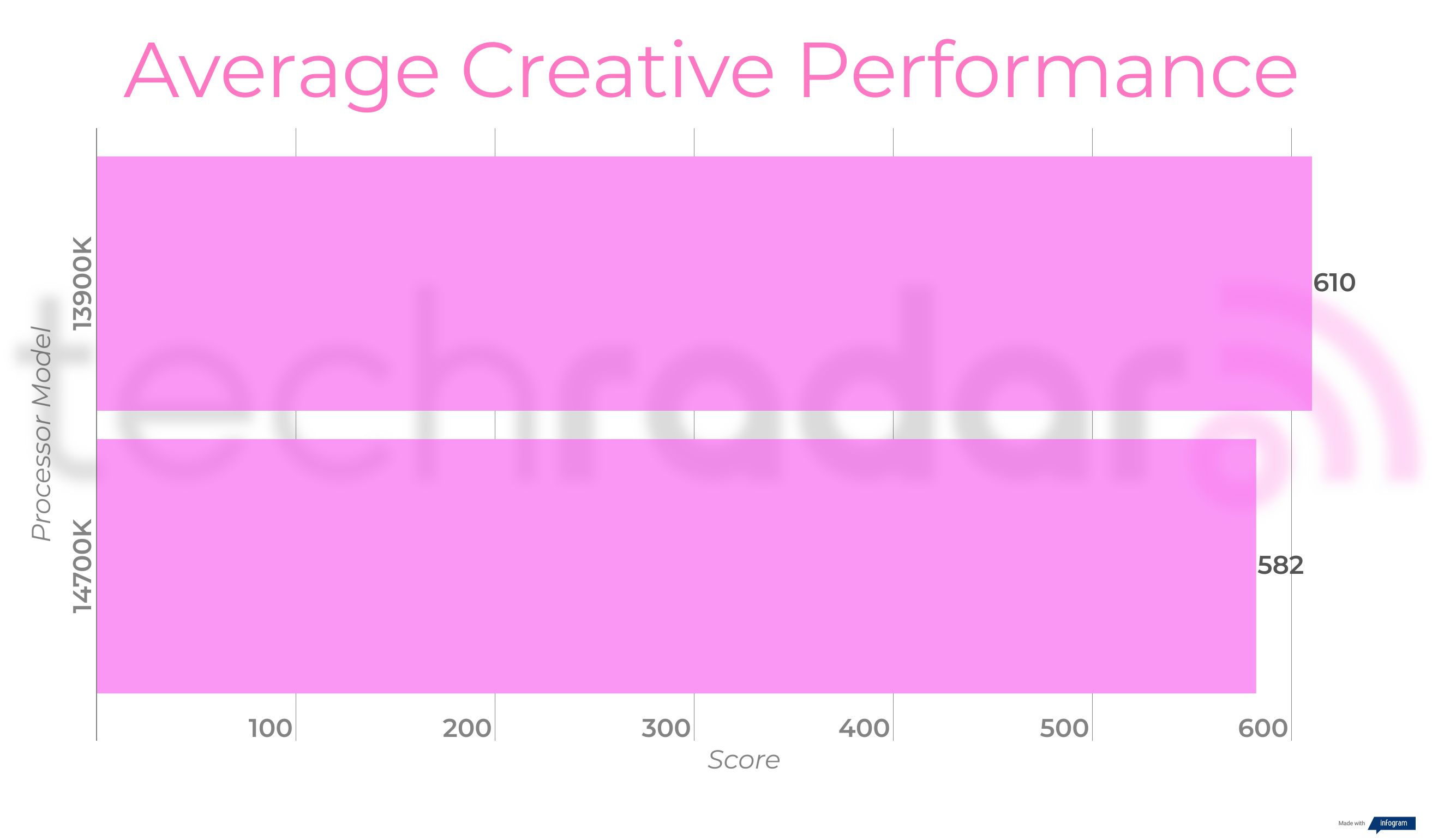
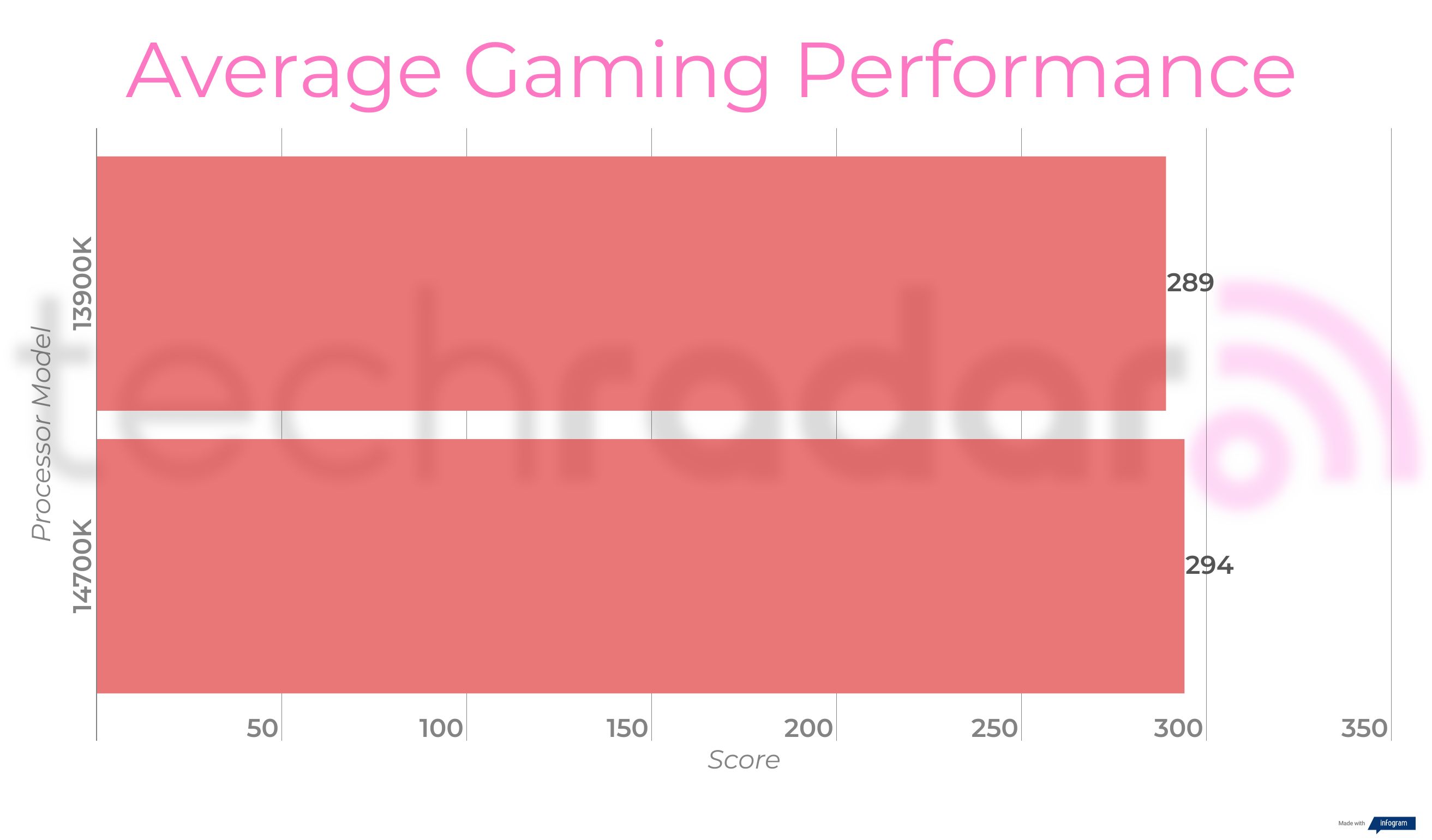
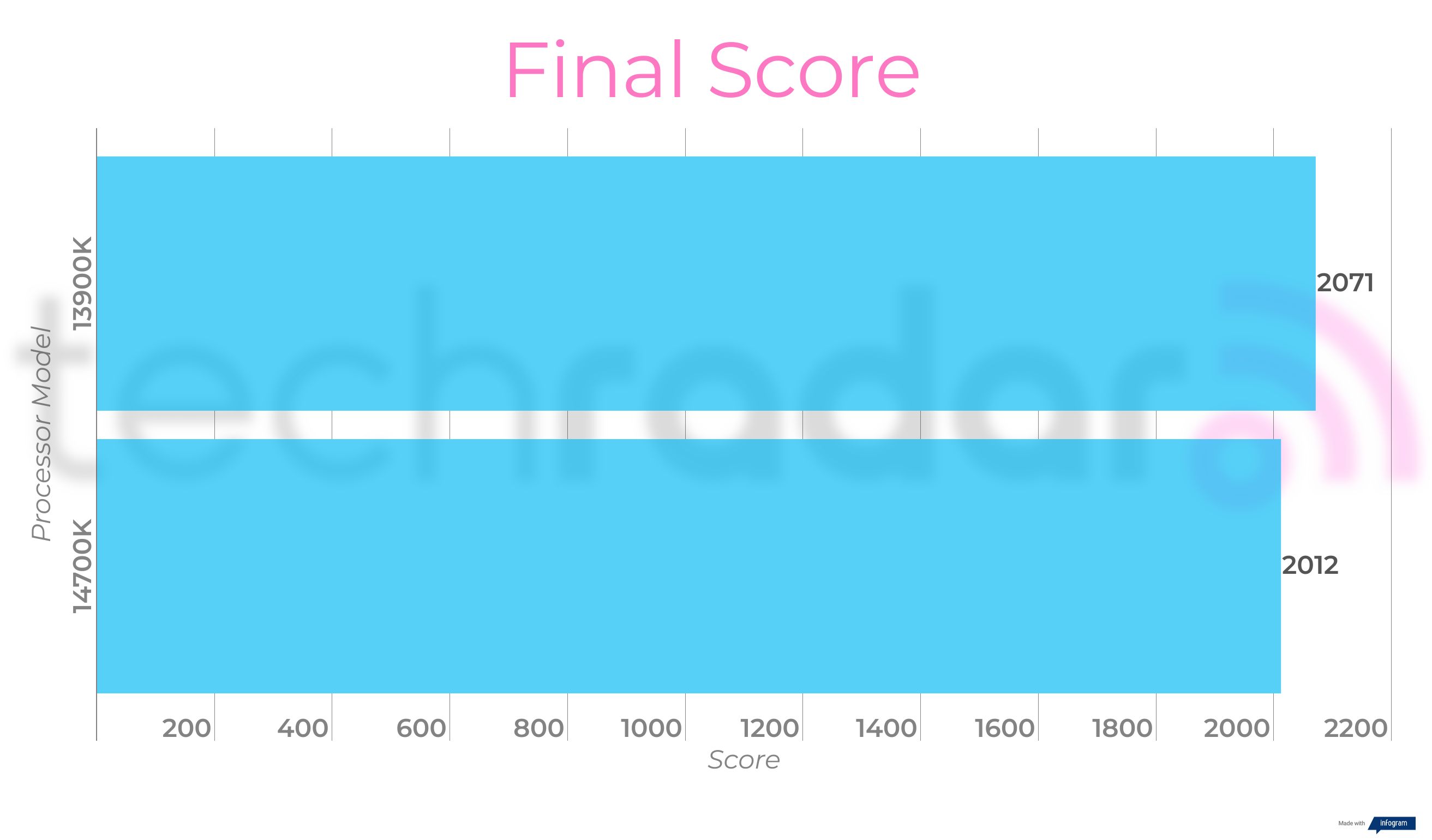
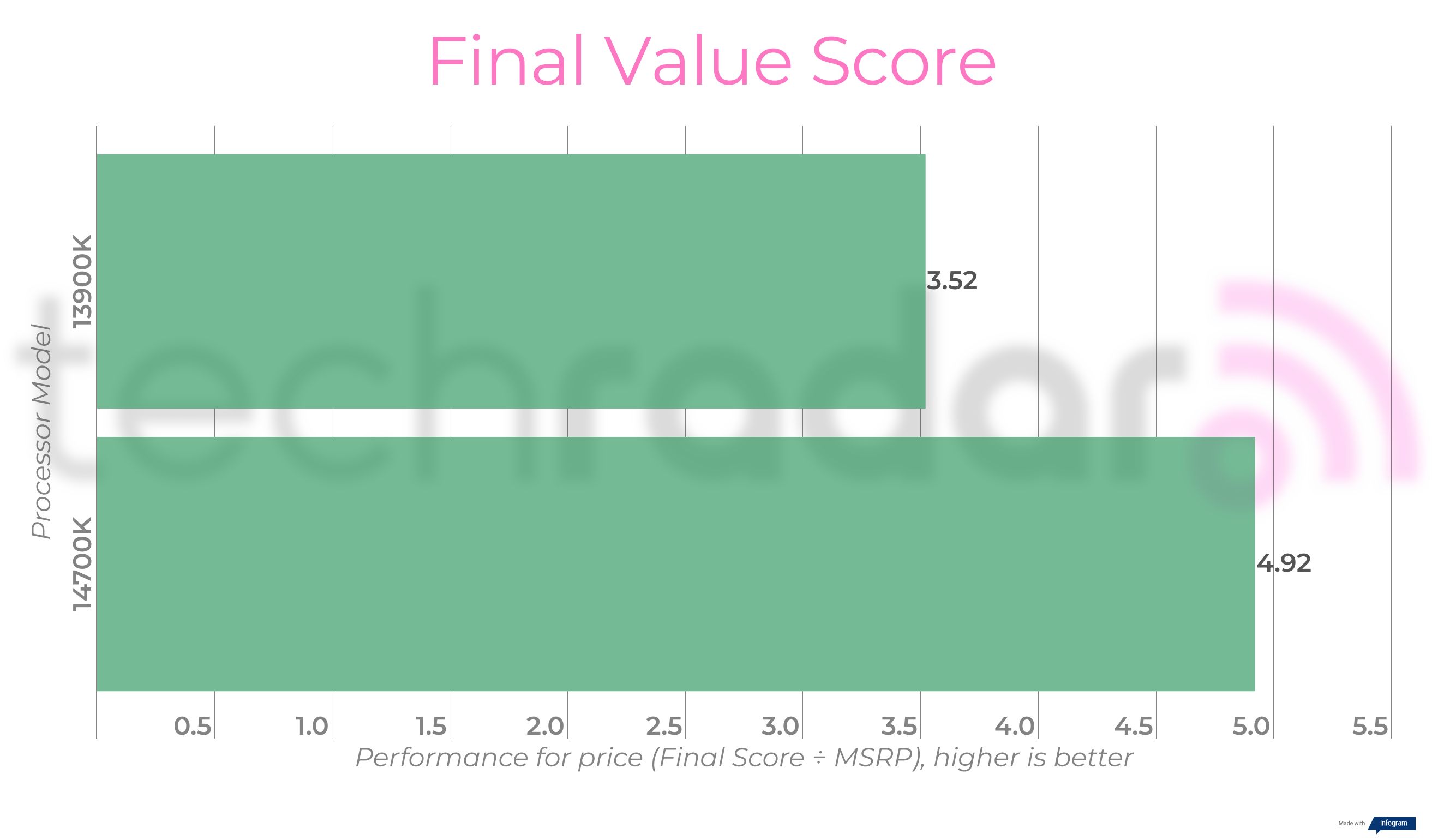
The raw numbers for average single and multi core performance show just show neck and neck the two CPUs really are, with the 14700K coming out on top for overall gaming performance and pulling ahead more than marginally in terms of value for money. However, the 13th-Gen i9 CPU holds its own with higher synthetic benchmarks in all major categories owing to the additional four cores under the hood.
- Winner: Intel Core i7-14700K
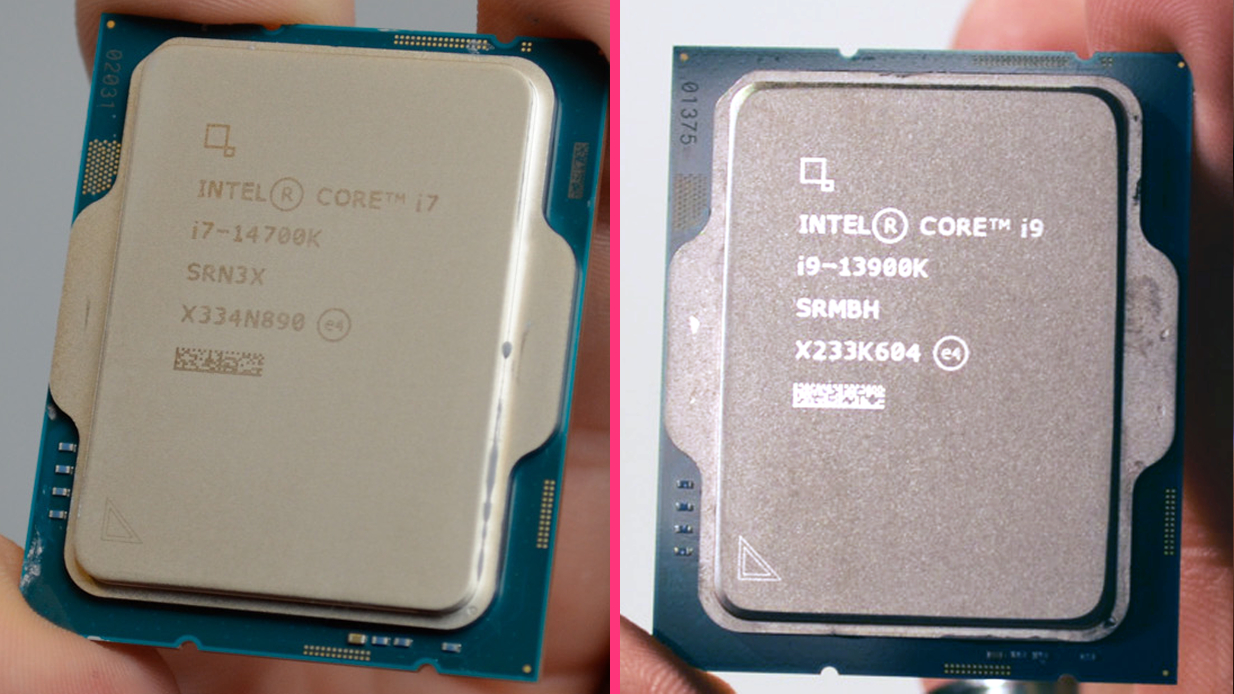
14700K vs 13900K: Final verdict
In summary, if you want the best value for money and the better overall gaming performance then the Intel Core i7-14700K is the processor to get out of the two. In our testing, we found that it was near-identical to i9 class performance with excellent benchmarks synthetically and with our real-world gaming testing. Considering the fact that it retails for $180 / £137 / AU$261 cheaper, you can’t really argue against the value it offers in terms of price to performance.
With that said, we can’t necessarily count out the older Intel Core i9-13900K either. It performed better than the newer 14th Gen i7 in many areas, however, considering the Intel Core i9-14900K retails for the same price with increased performance, there’s little reason to spring for the previous-generation chipset unless you find it with a discount. Generally speaking, you’re served well to build one of the best gaming PCs armed with one of the best graphics cards with either processor; we just think that the 14700K offers more for most people.

Formerly TechRadar Gaming's Hardware Editor, Aleksha McLoughlin is now a freelance writer and editor specializing in computing tech, video games, and E-commerce. As well as her many contributions to this site, you'll also find her work available on sister sites such as PC Gamer, GamesRadar, and Android Central. Additionally, more of her bylines can be found on Trusted Reviews, Dexerto, Expert Reviews, Techopedia, PC Guide, VideoGamer, and more.